Georgia Native Plants
Locally grown plants that support our native ecosystems
Why Choose Native Plants?
Native plants are adapted to local soil, rainfall, and temperature conditions, making them easier to grow and maintain. They provide food and habitat for local wildlife, including pollinators like butterflies and bees.
At Sweet Onion, we're proud to offer a selection of Georgia native plants that will thrive in your garden while supporting local biodiversity.
Our Native Plant Selection
Sun Exposure
Primary Soil Condition
Garden Situation
Sort By
Full-Sun Only Plants
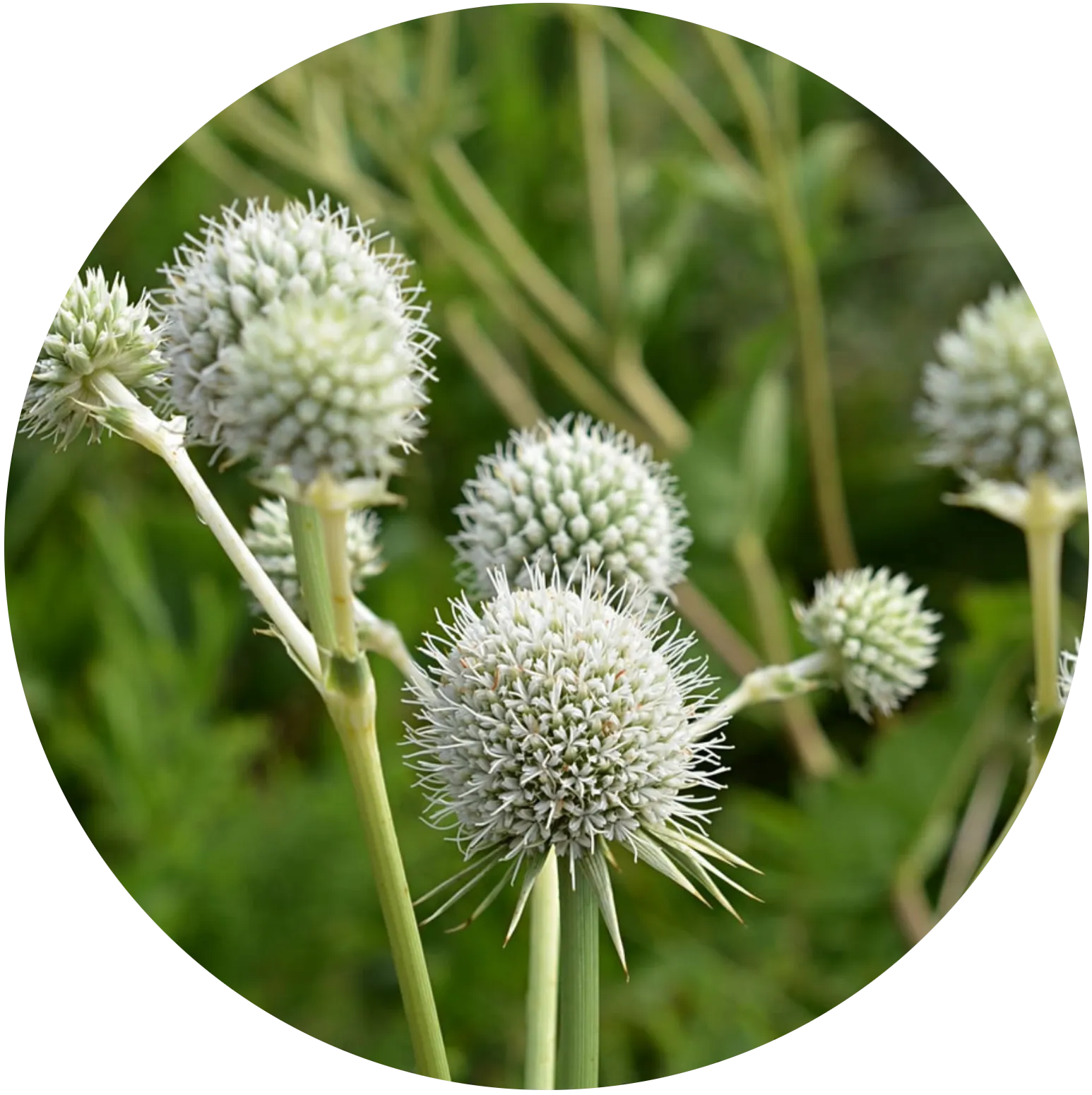
Rattlesnake Master
Eryngium yuccifolium
Great for rain gardens with its blue-green yucca-like bloom. A pollinator magnet that thrives in full sun and medium soil conditions.
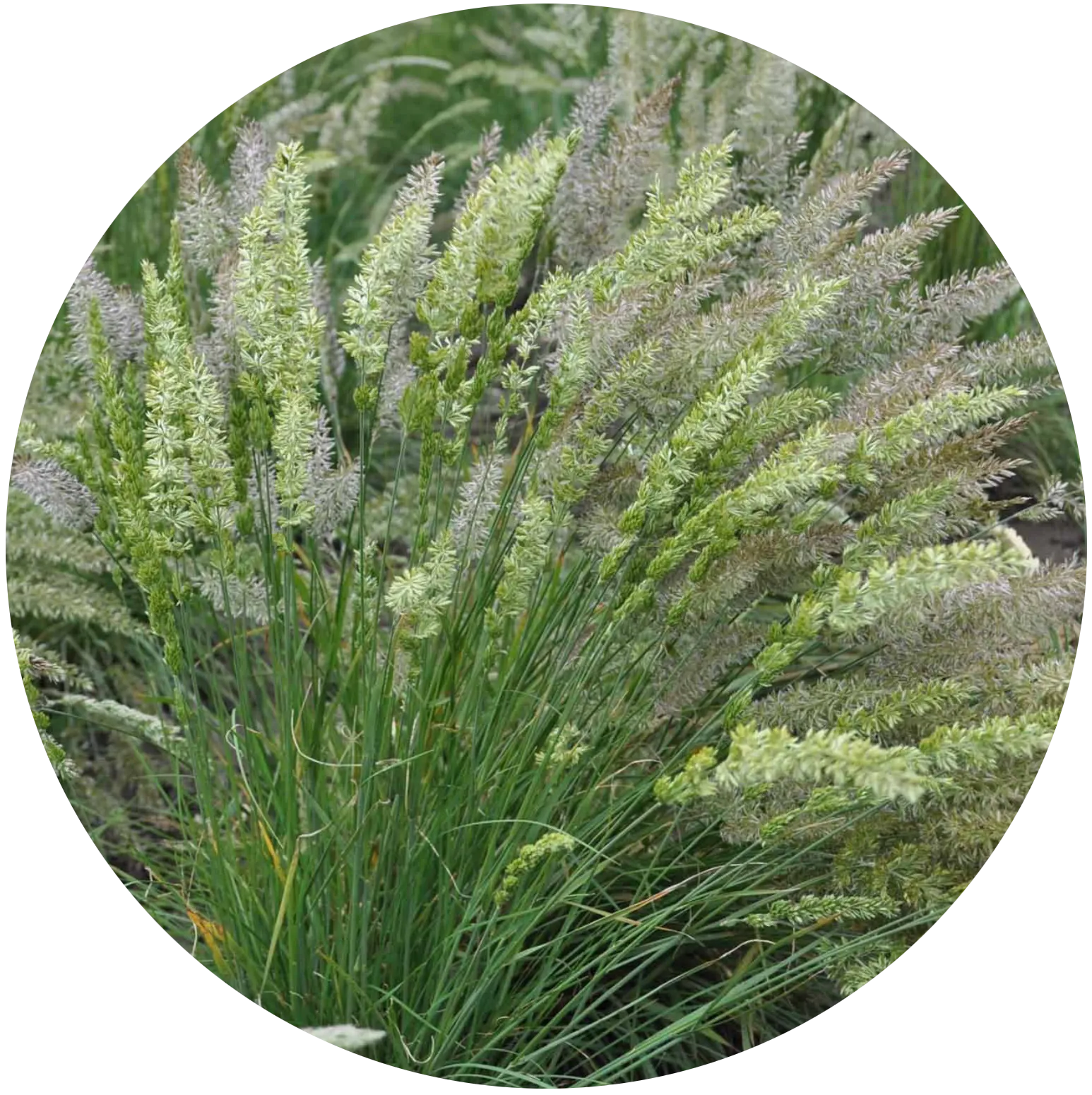
June Prairie Grass
Koeleria macrantha
Cool season grass with dense silvery/green seed heads. Good for rock gardens and thrives in full sun with dry soil conditions.
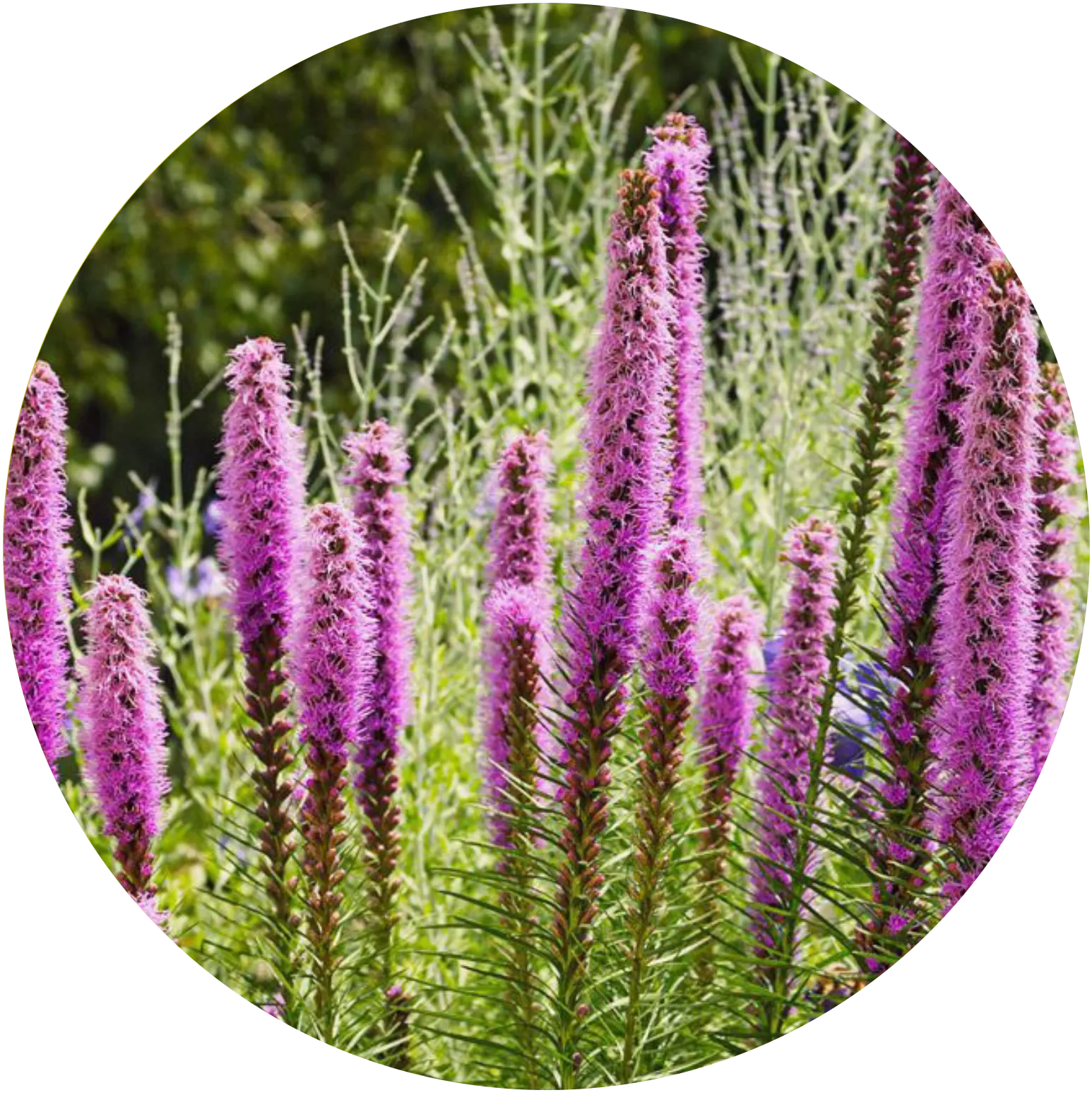
Small Head Blazing Star
Liatris microcephala
Features rich fluffy purple bloom and is drought tolerant. Attracts birds, hummingbirds, and butterflies. Thrives in full sun with dry soil conditions.
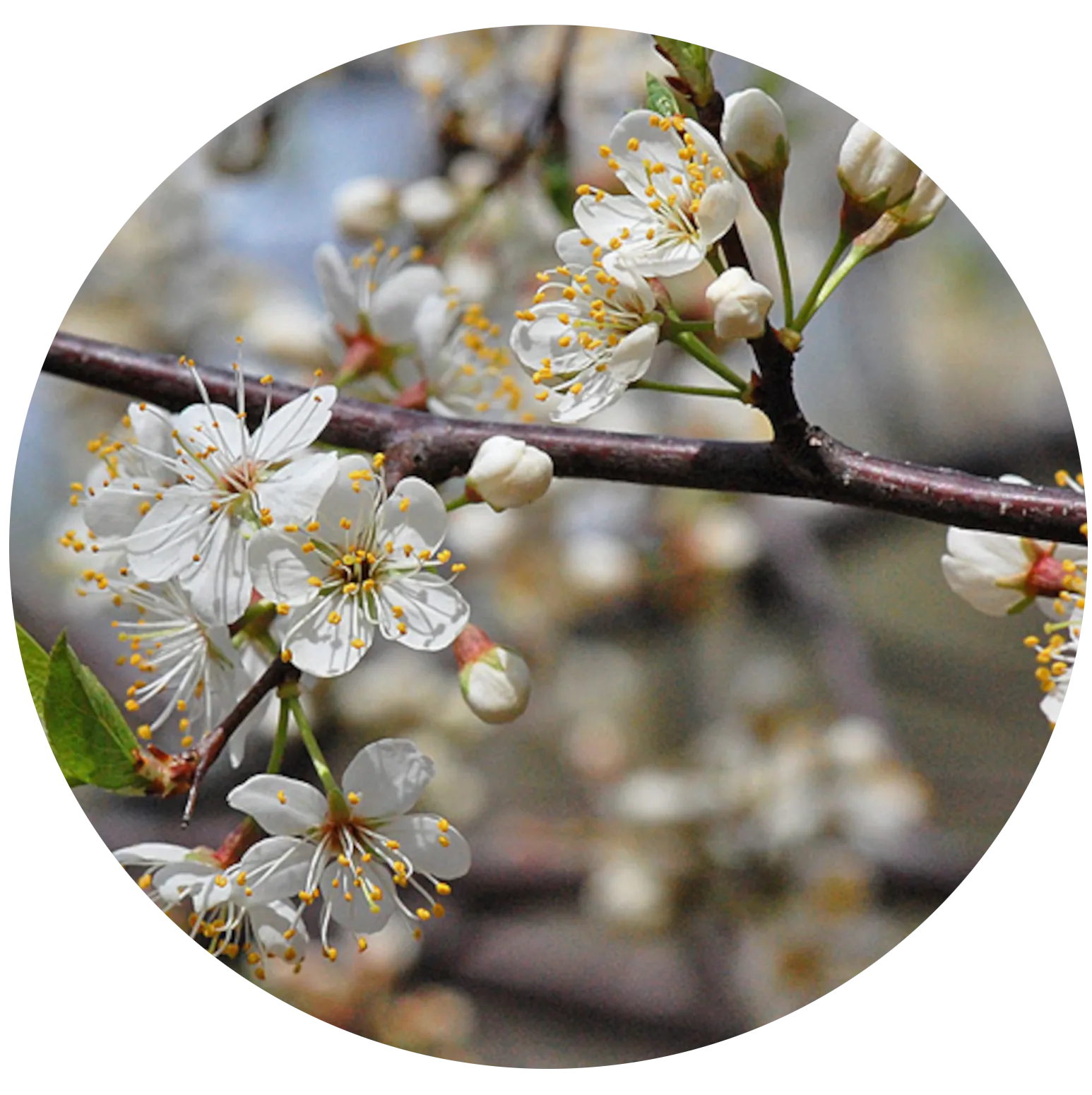
American Plum
Prunus americana
Fragrant white flowers in early spring. Edible plums in late summer. Excellent for wildlife habitat and natural hedges.
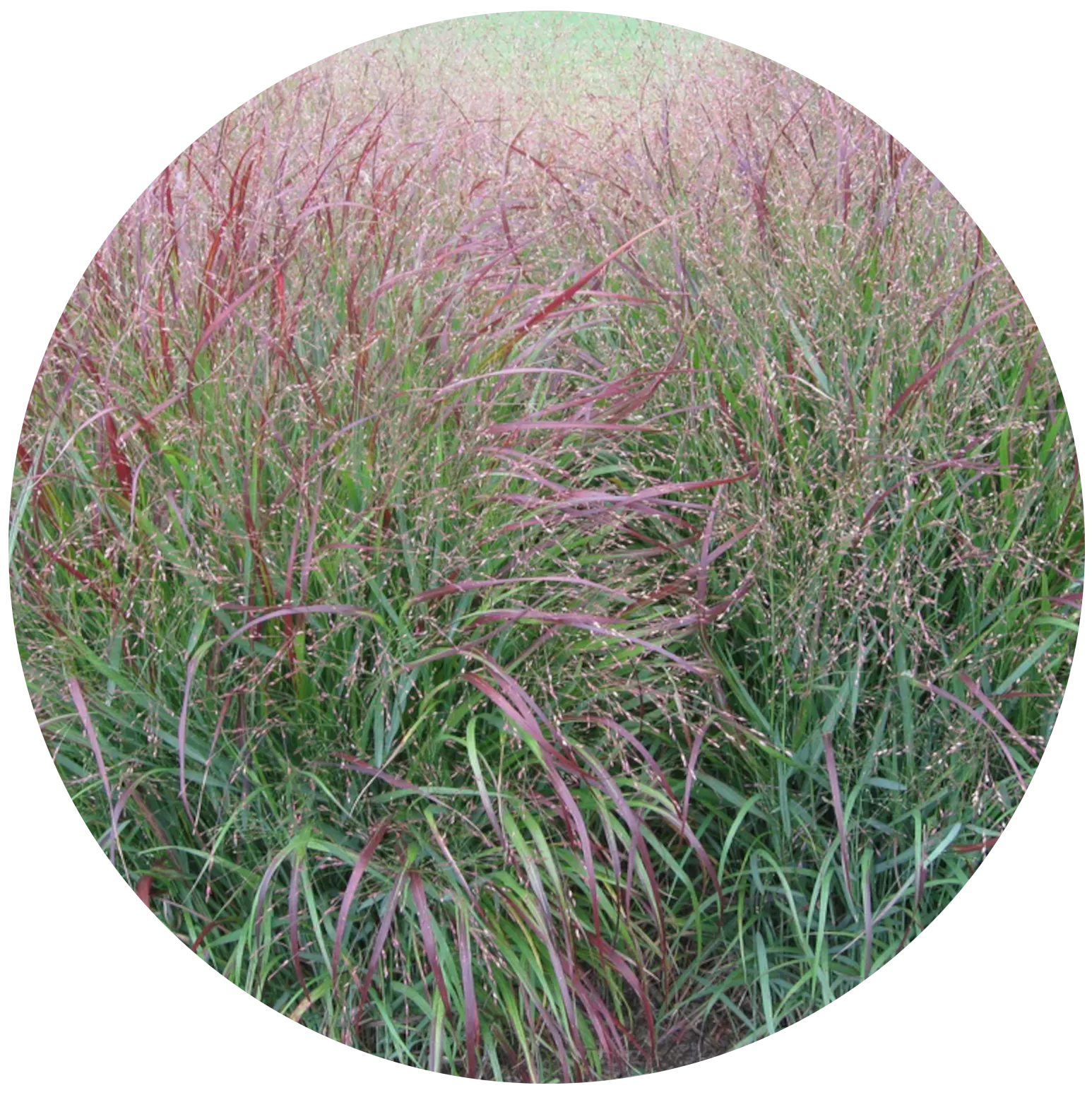
Prairie Dog Switchgrass
Panicum virgatum
Airy seed heads provide winter interest. Beautiful fall color. Erosion control and wildlife habitat.
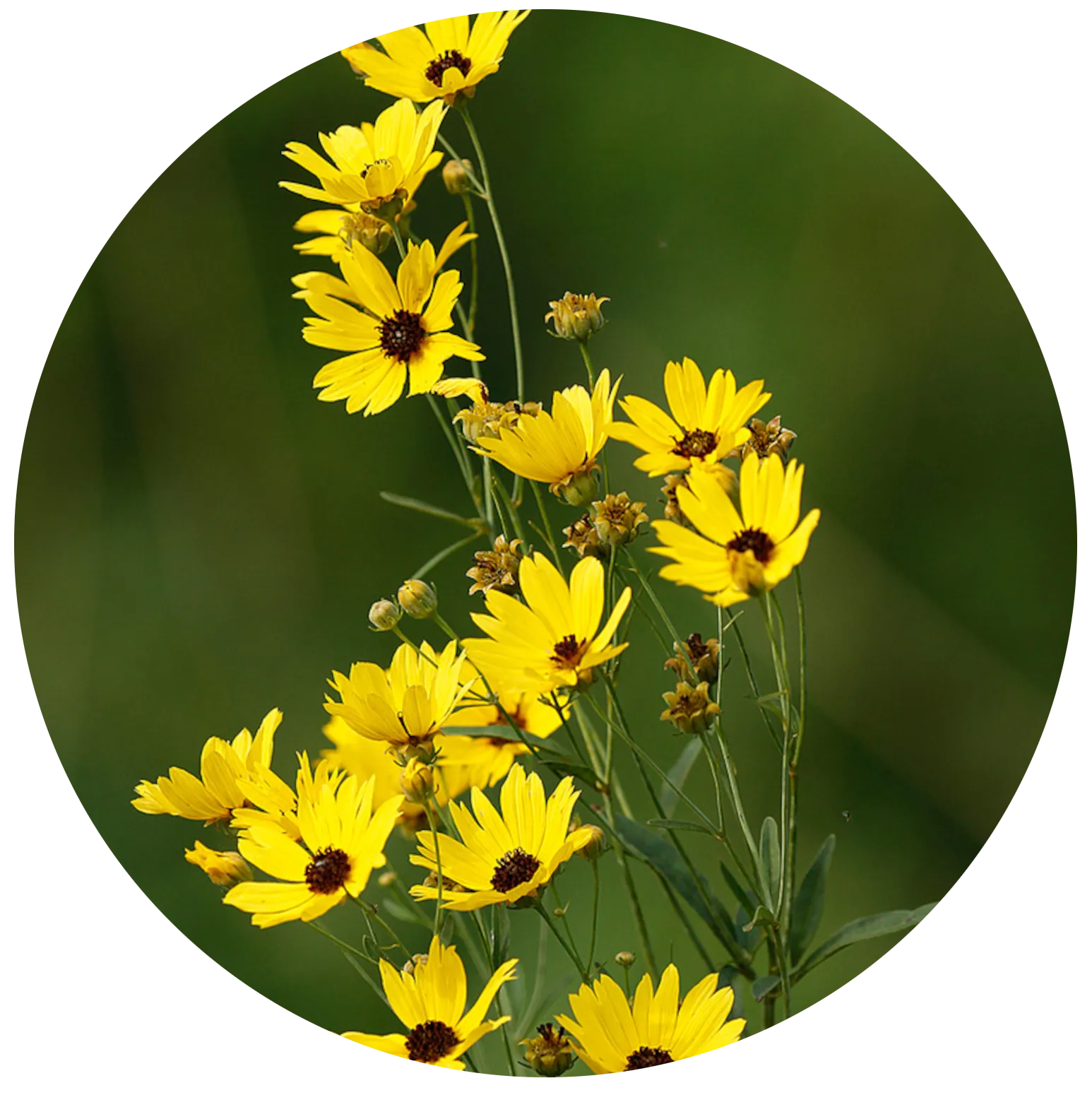
Tall Coreopsis
Coreopsis tripteris
Yellow daisy-like flowers in late summer. Tall, statuesque background plant. Attracts beneficial insects and birds.
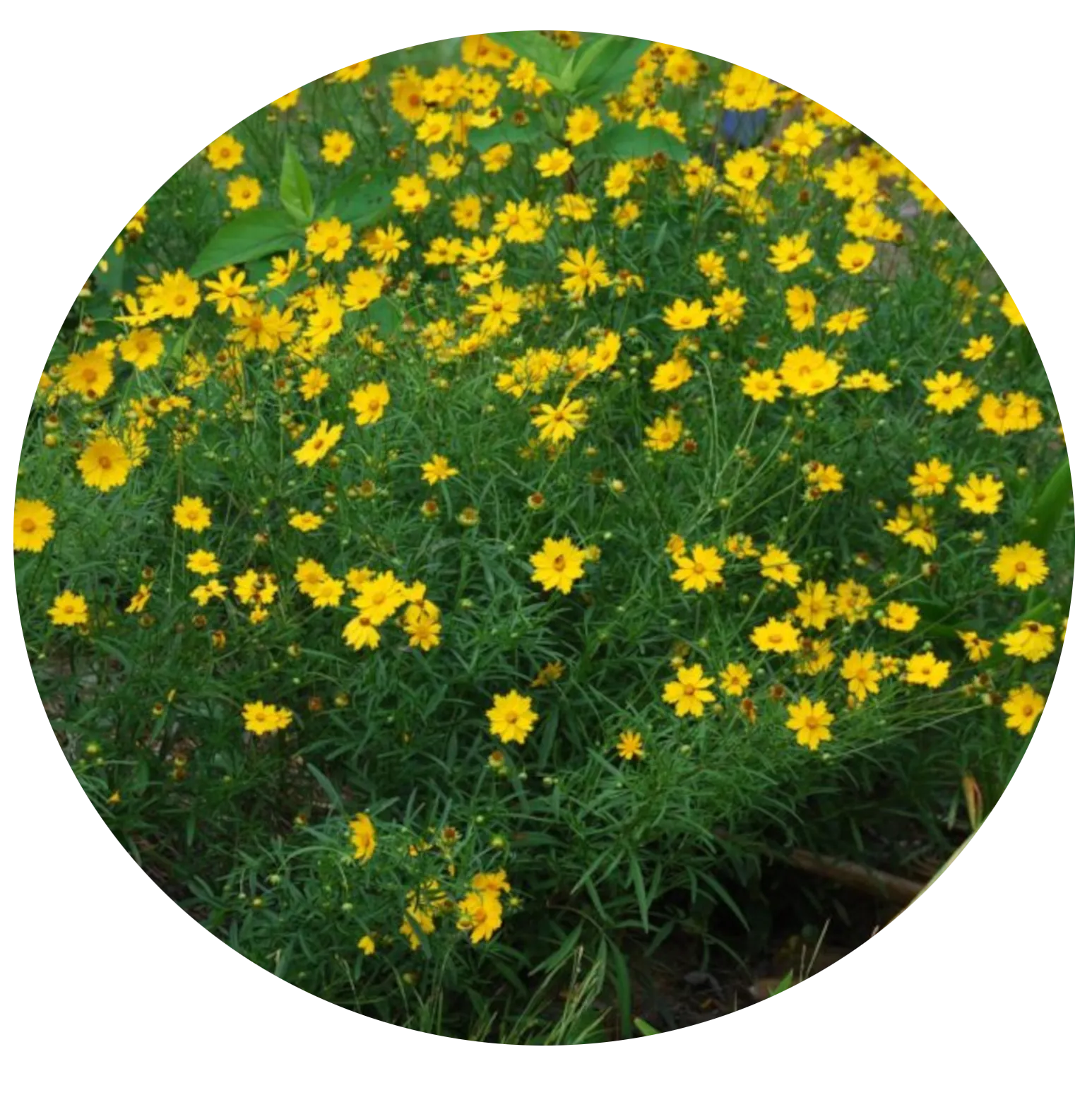
Grand Coreopsis
Coreopsis grandiflora
Bright golden-yellow flowers. Long blooming period. Drought tolerant once established.
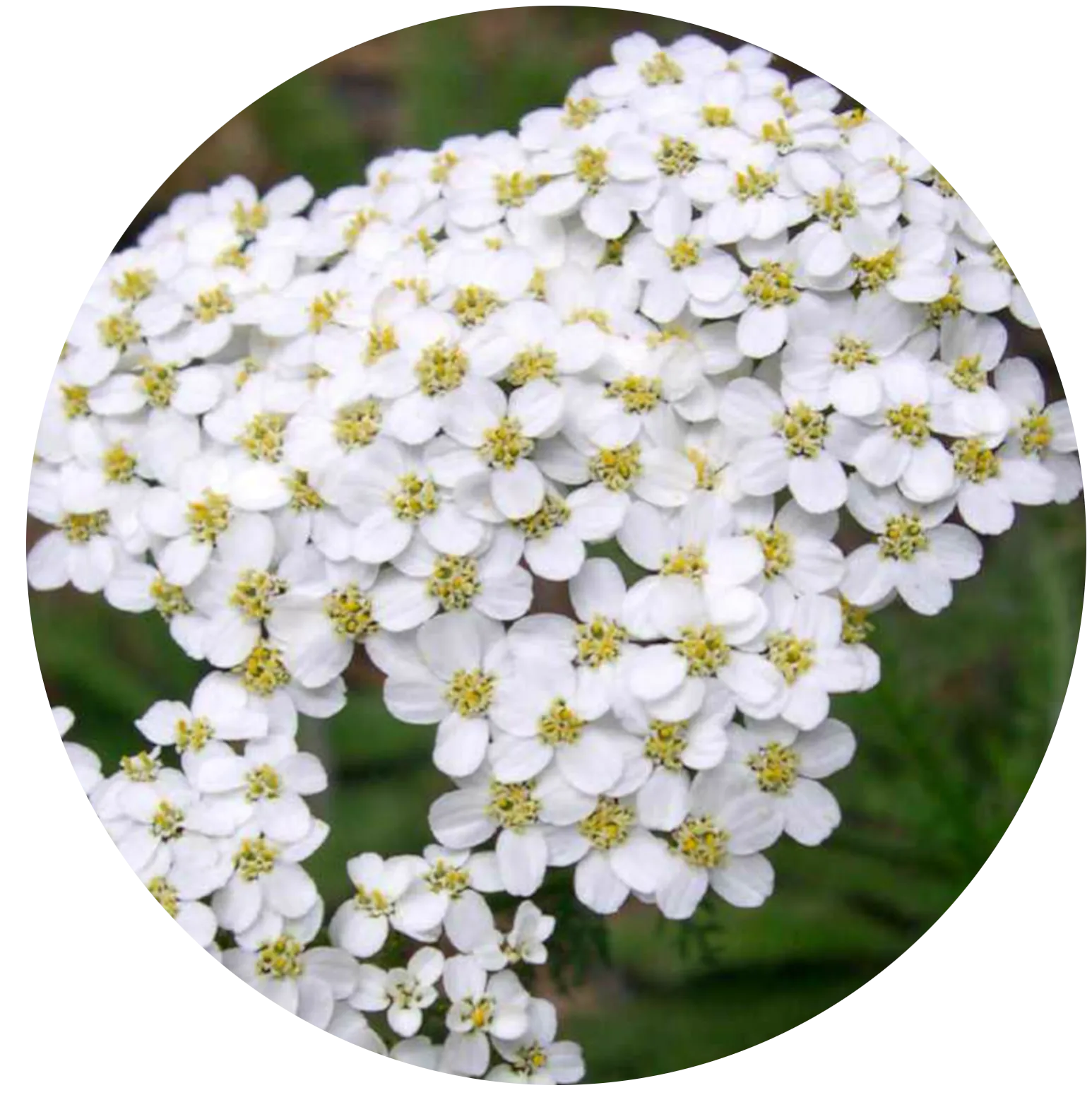
Yarrow
Achillea millefolium
Flat-topped white flower clusters. Feathery, aromatic foliage. Drought tolerant and deer resistant.
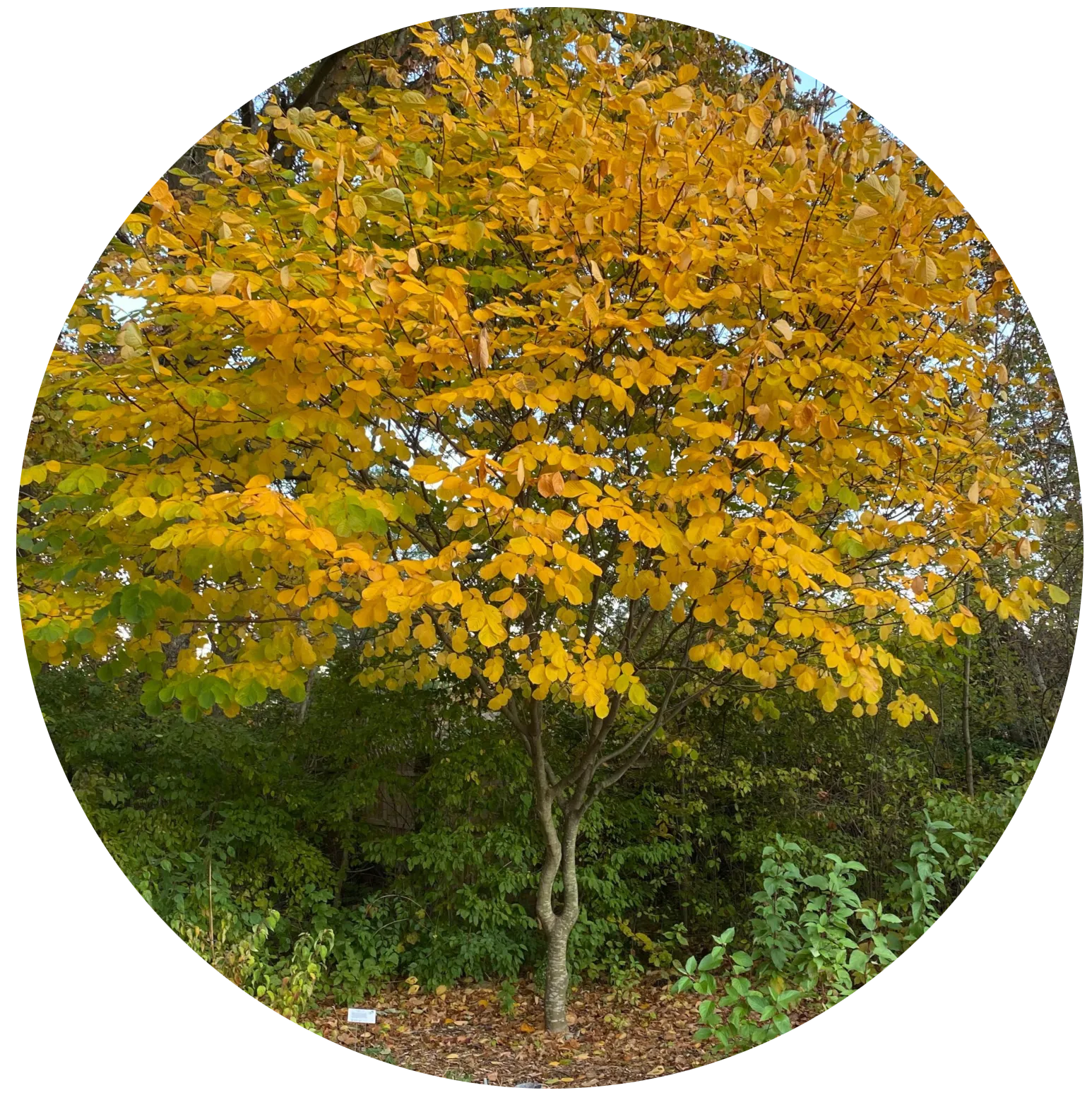
American Yellow Wood
Cladrastis kentukea
Fragrant white flower chains in spring. Yellow fall color. Low-maintenance shade tree.
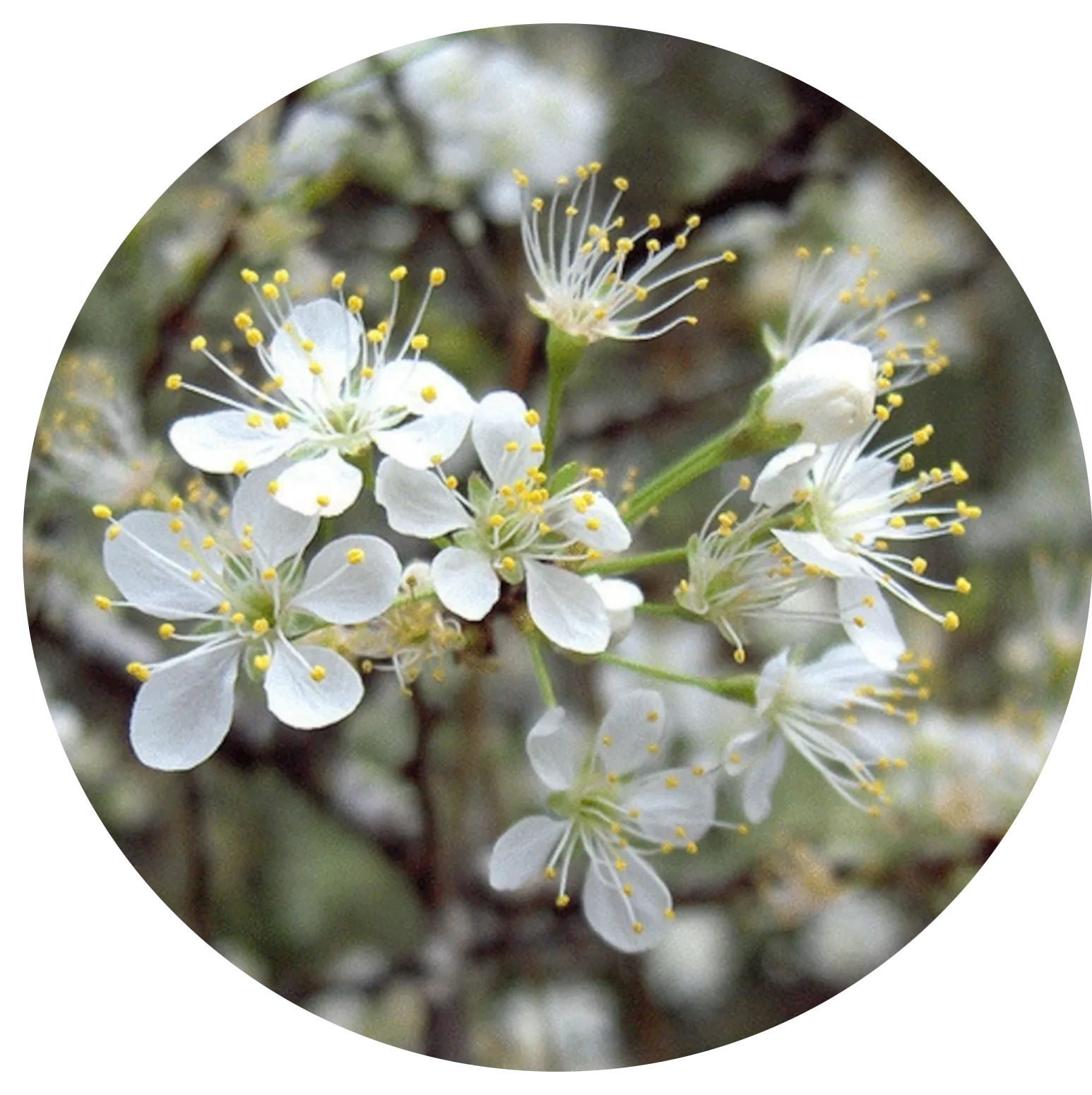
Chickasaw Plum
Prunus angustifolia
Fragrant white flowers in early spring. Edible red or yellow fruits. Wildlife habitat and food source.
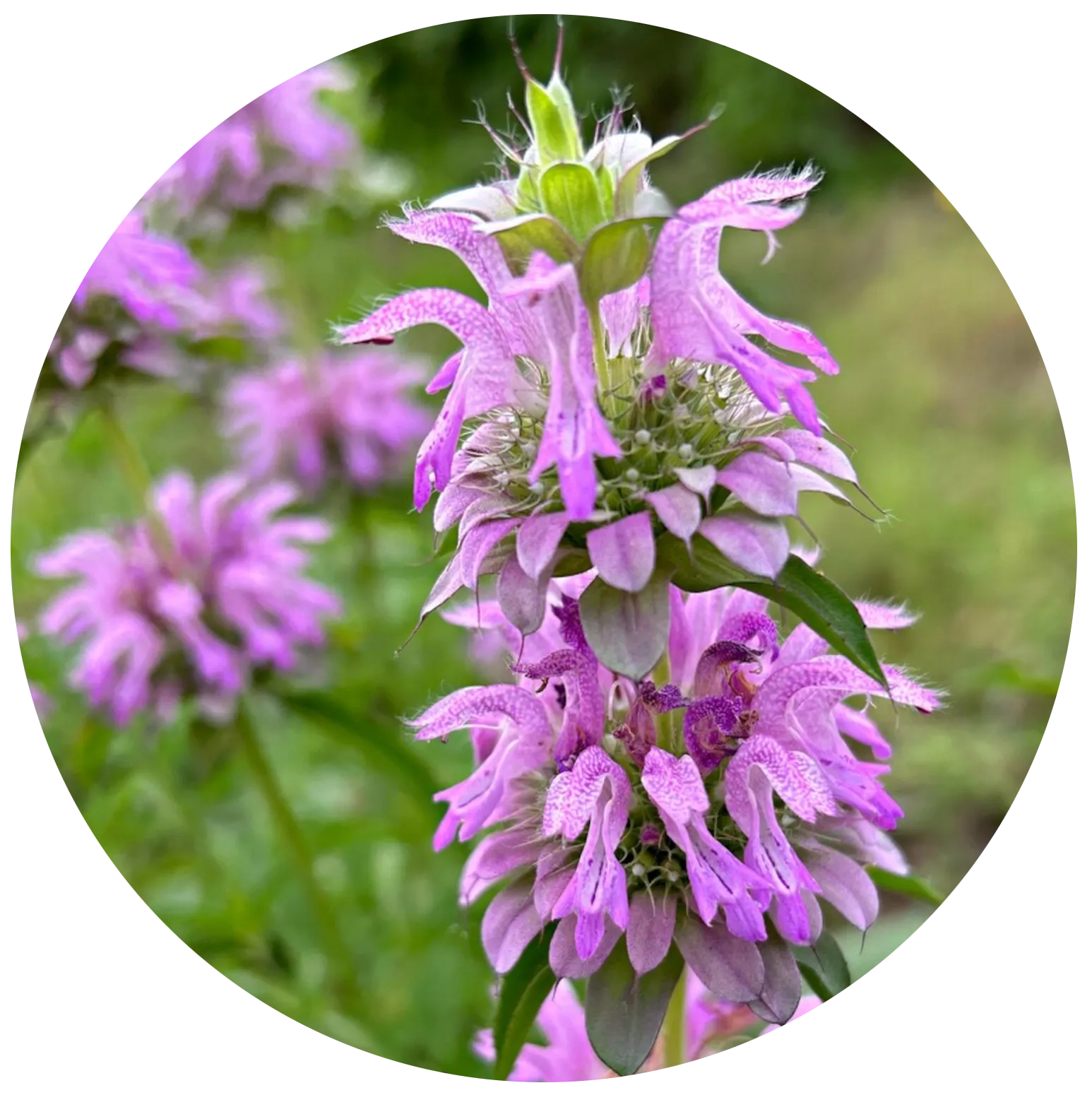
Spotted Bee Balm
Monarda punctata
Unique tiered whorls of spotted flowers. Highly attractive to pollinators. Aromatic foliage.
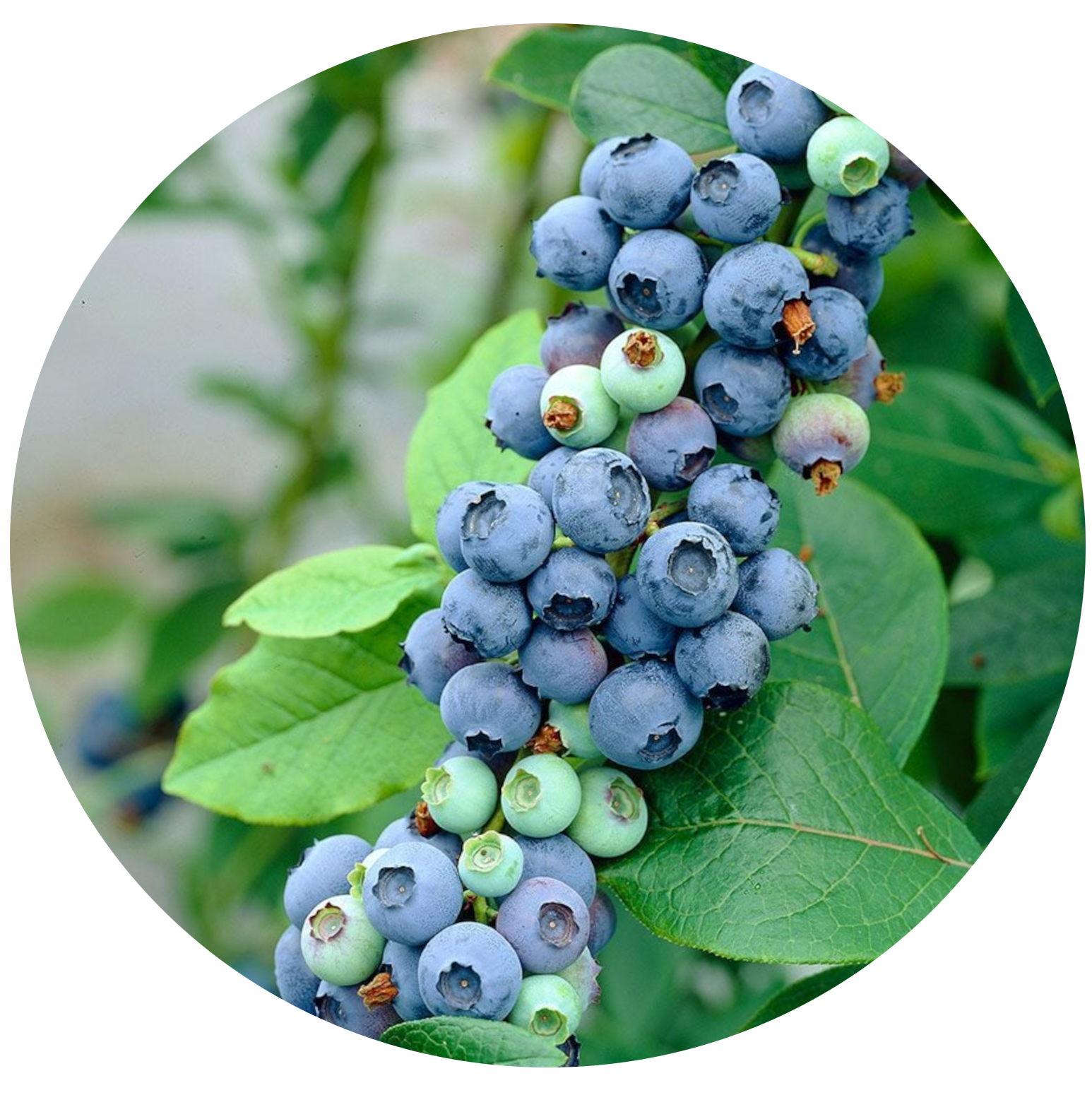
Brightwell Blueberry
Vaccinium virgatum
Disease-resistant and adaptable, producing high yields of medium to large sweet berries with excellent flavor. Deciduous shrub that grows 6-8ft tall and wide with attractive fall foliage.
Part Shade Only Plants
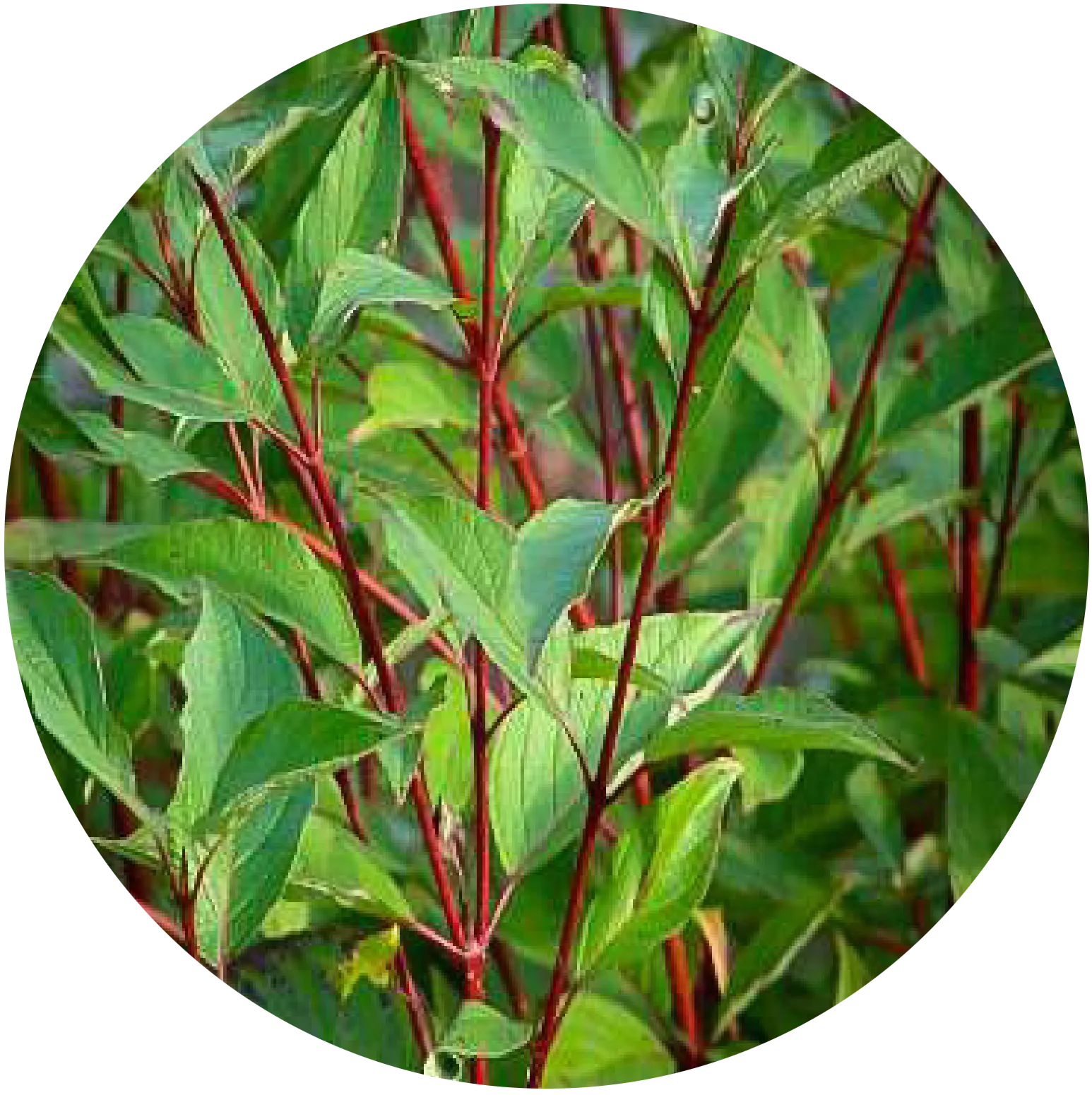
Red Twig Dogwood
Cornus sericea
Multi-stemmed shrub featuring bright red stems and showy fall color. Host of the spring azure butterfly. Prefers part shade with wet, well-drained soil.
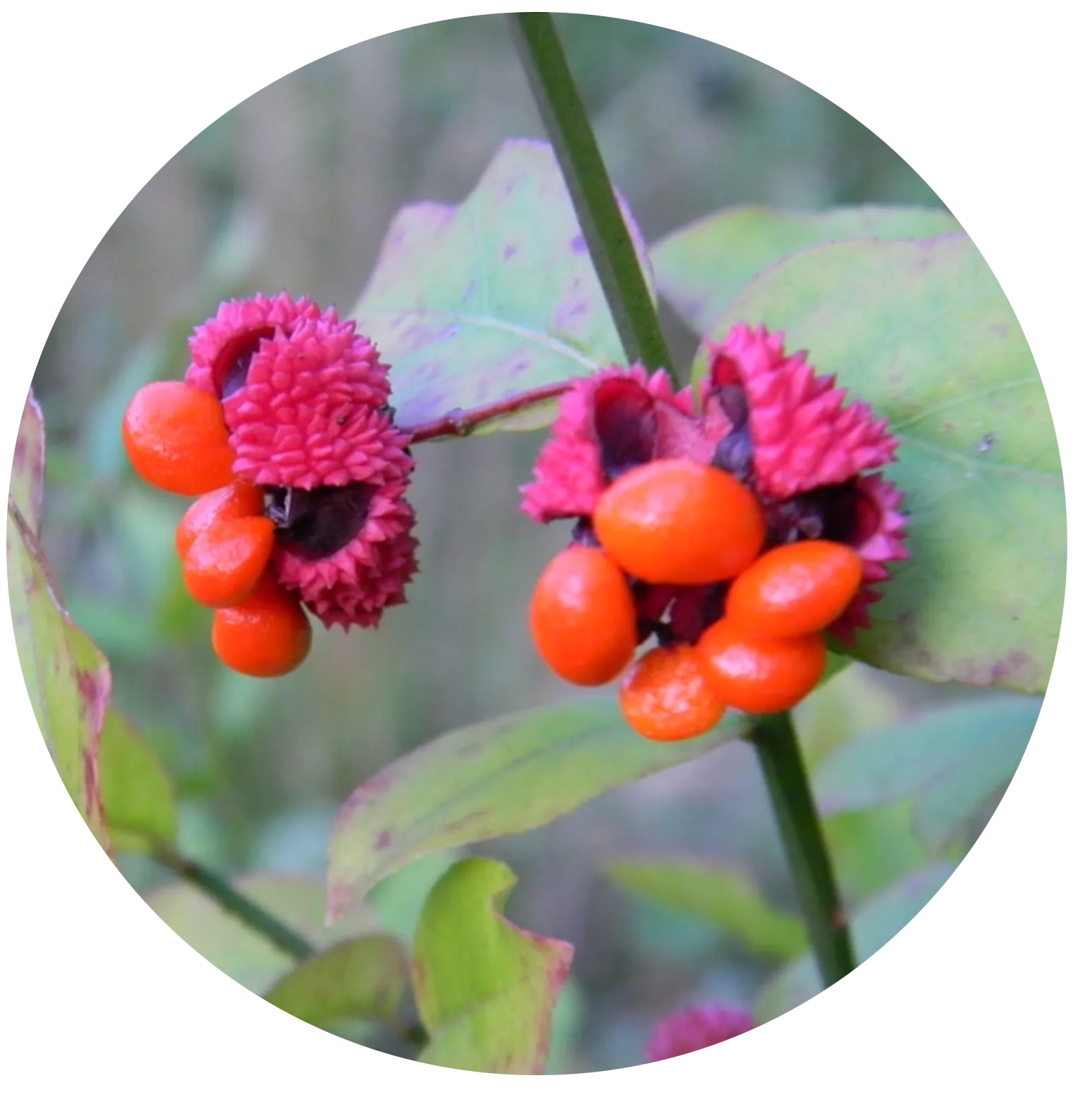
Hearts-a-Busting
Euonymus americanus
Unusual fruits that split to reveal red seeds. Understory woodland shrub. Four-season interest.
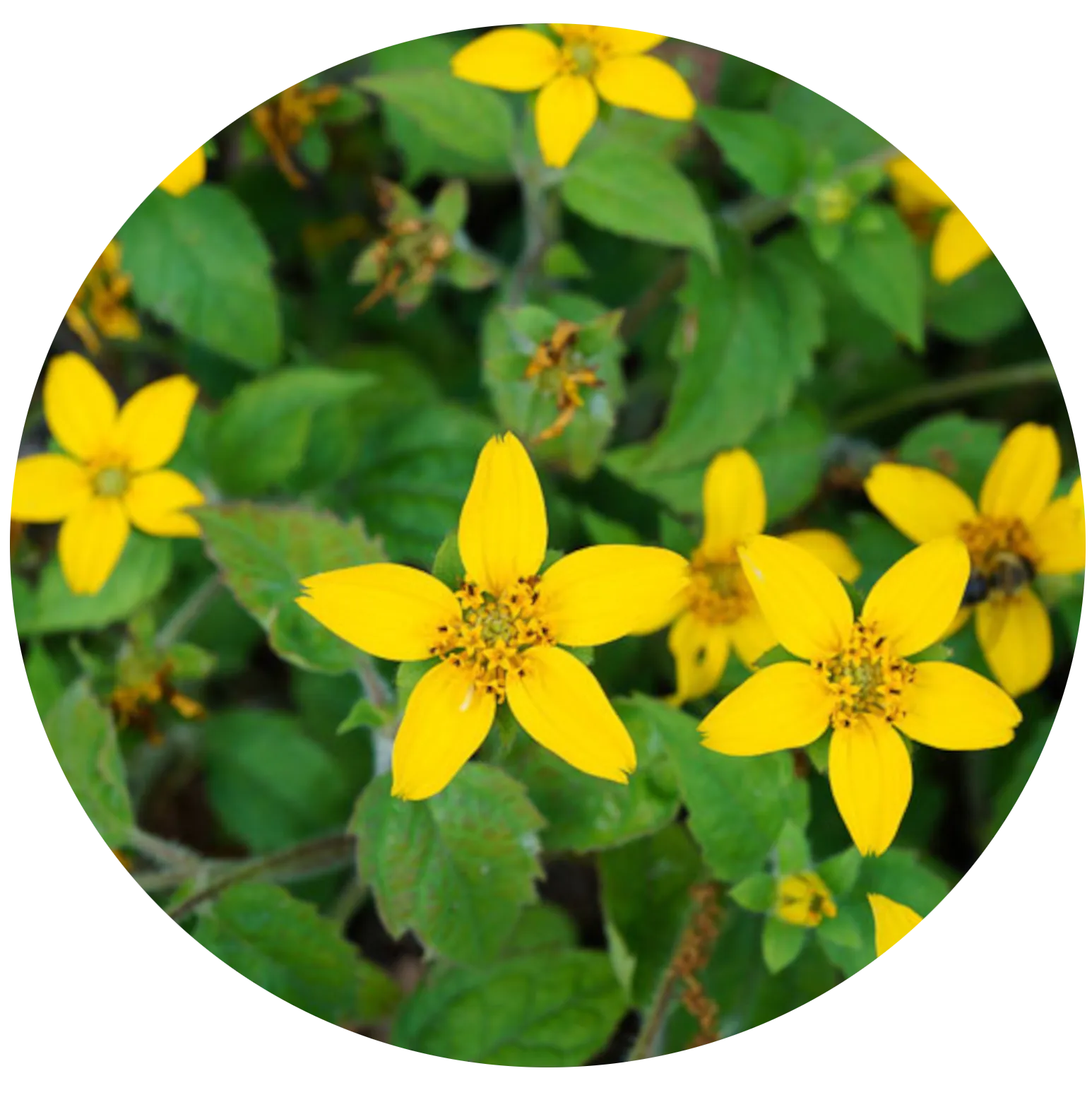
Green-and-Gold
Chrysogonum virginianum
Golden star-shaped flowers. Semi-evergreen groundcover. Spring to summer blooming.
Shade Only Plants
Sun to Part Shade Plants
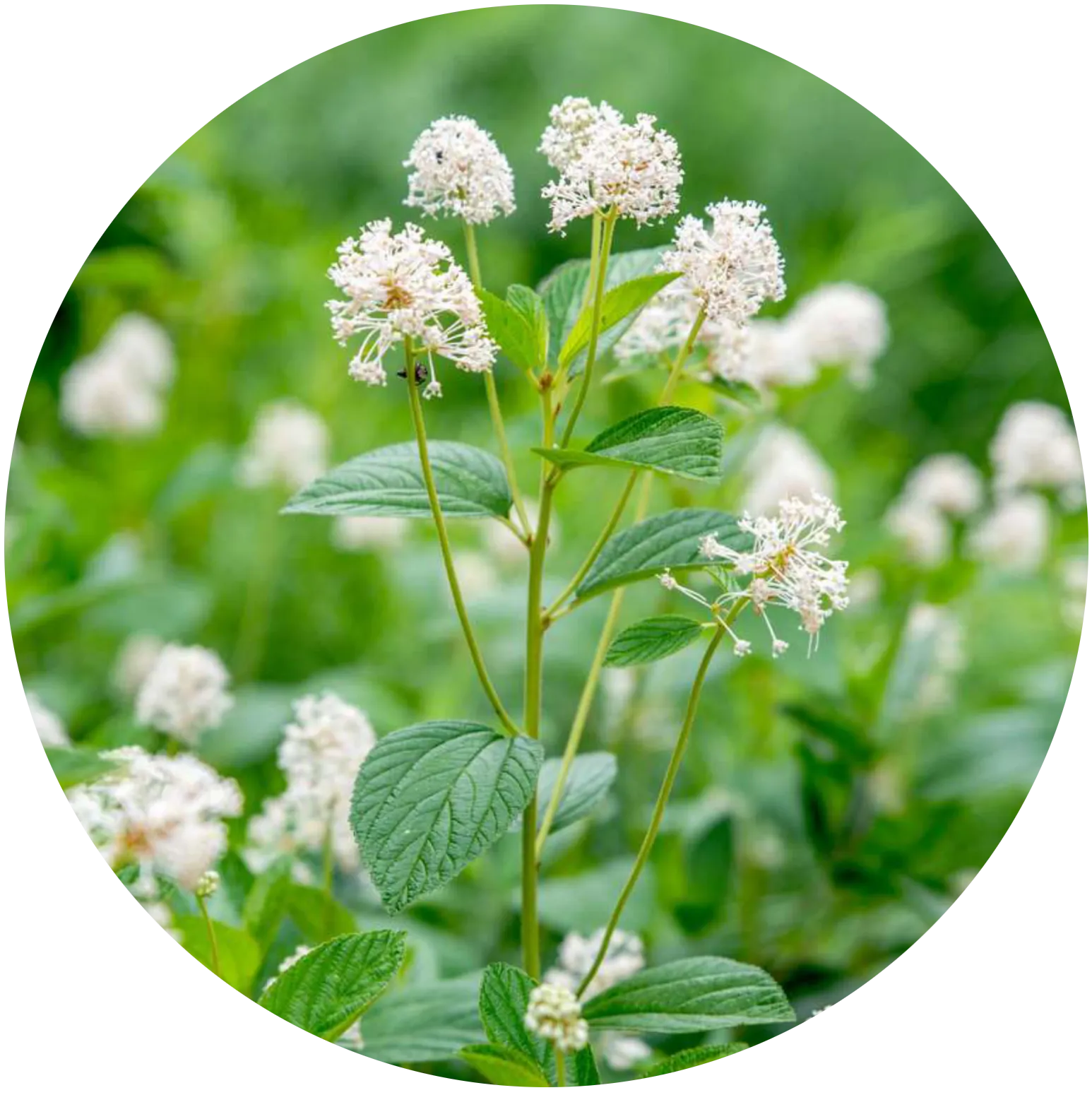
New Jersey Tea
Ceanothus americanus
Attracts hummingbirds and butterflies with its clustered tiny, fragrant, white flowers. Great as ground cover in hard-to-grow areas. Thrives in full sun to part shade with dry to medium soil.
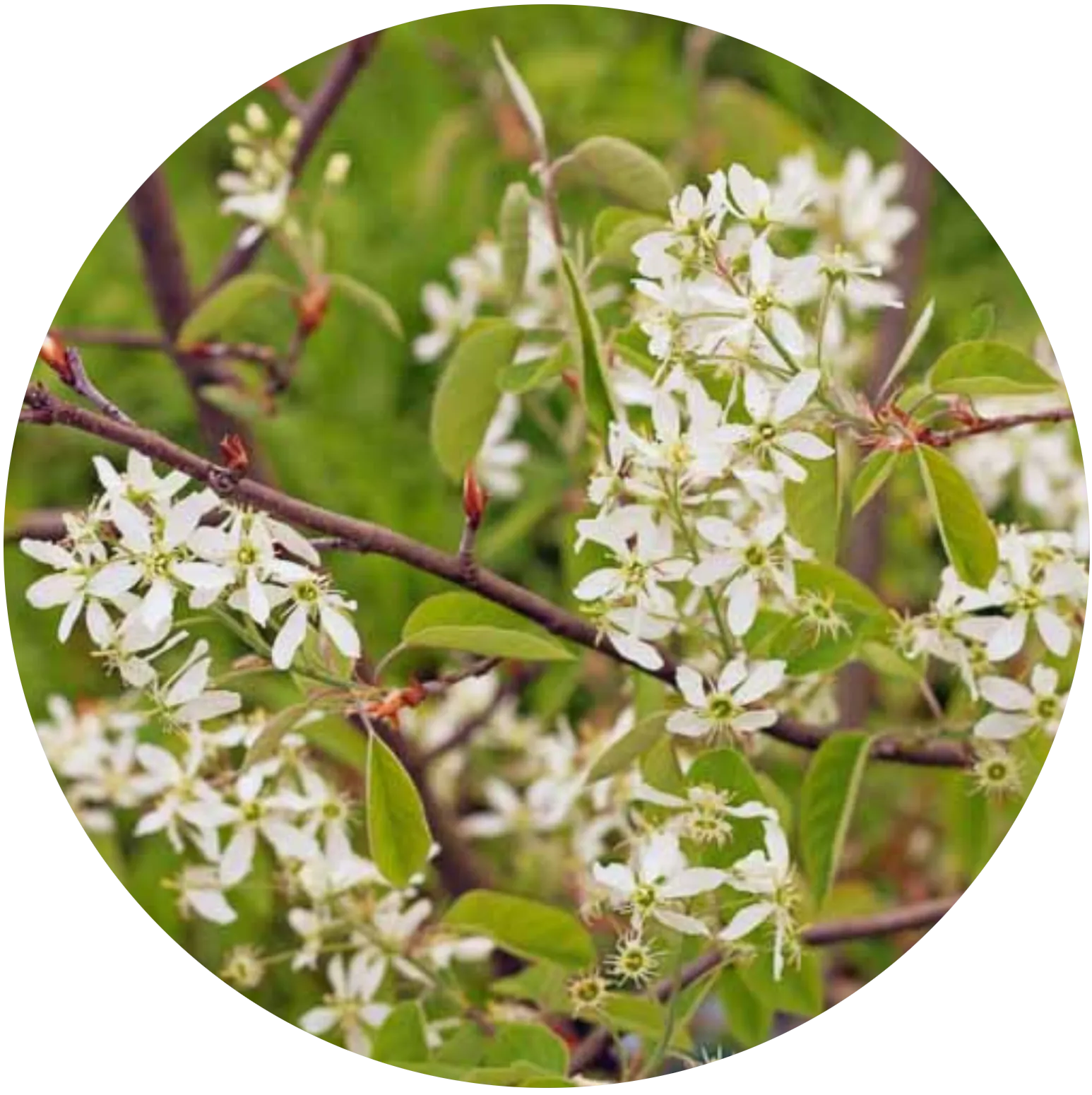
Canadian Serviceberry
Amelanchier arborea
Tall shrub/small tree that produces small edible berries and displays great fall color. Grows well in full sun to part shade and is drought tolerant once established.
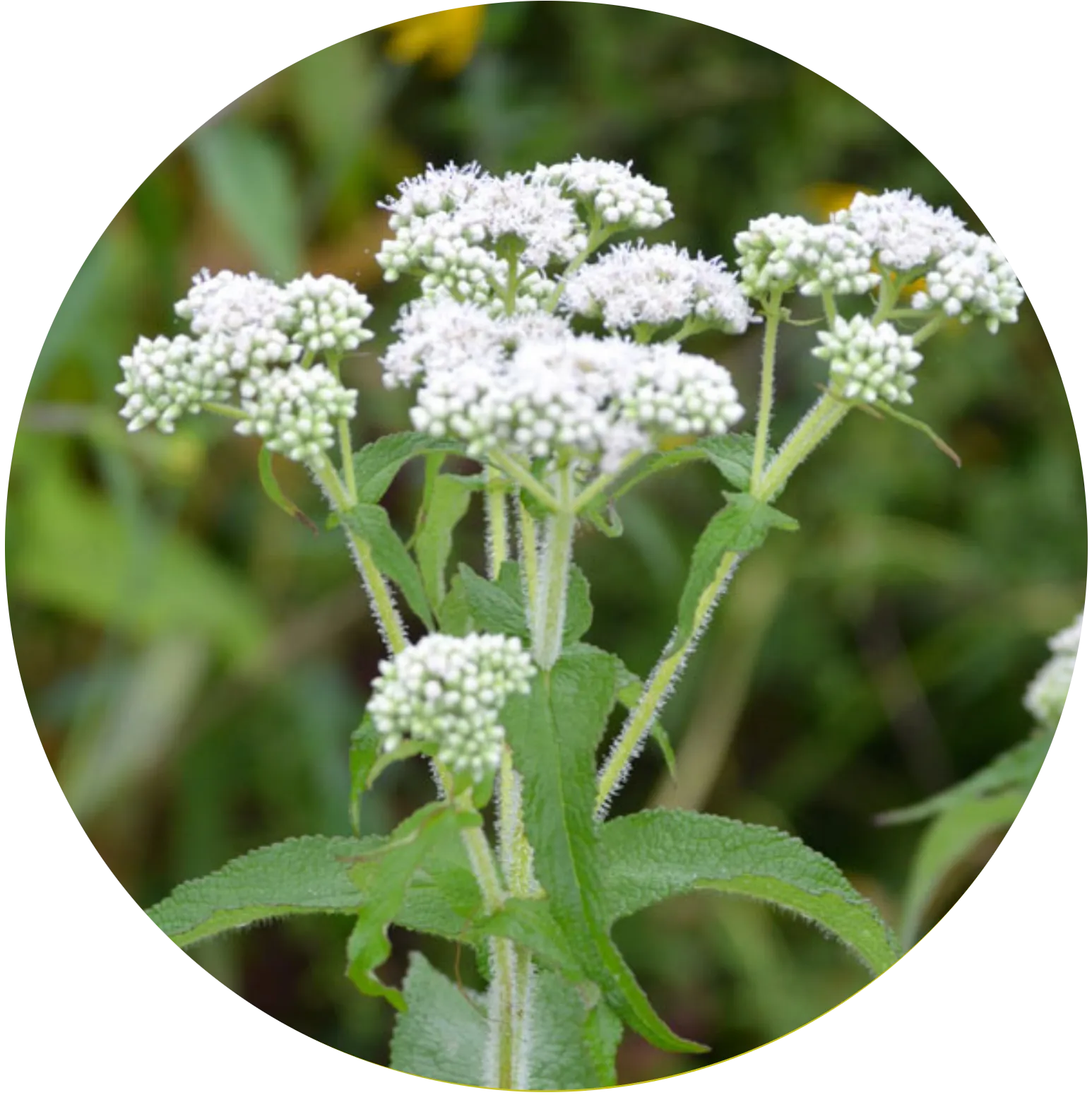
Common Boneset
Eupatorium perfoliatum
Tall structural element for a garden that attracts birds and butterflies. Features interesting leaf structure and grows well in full sun to part shade with medium soil.
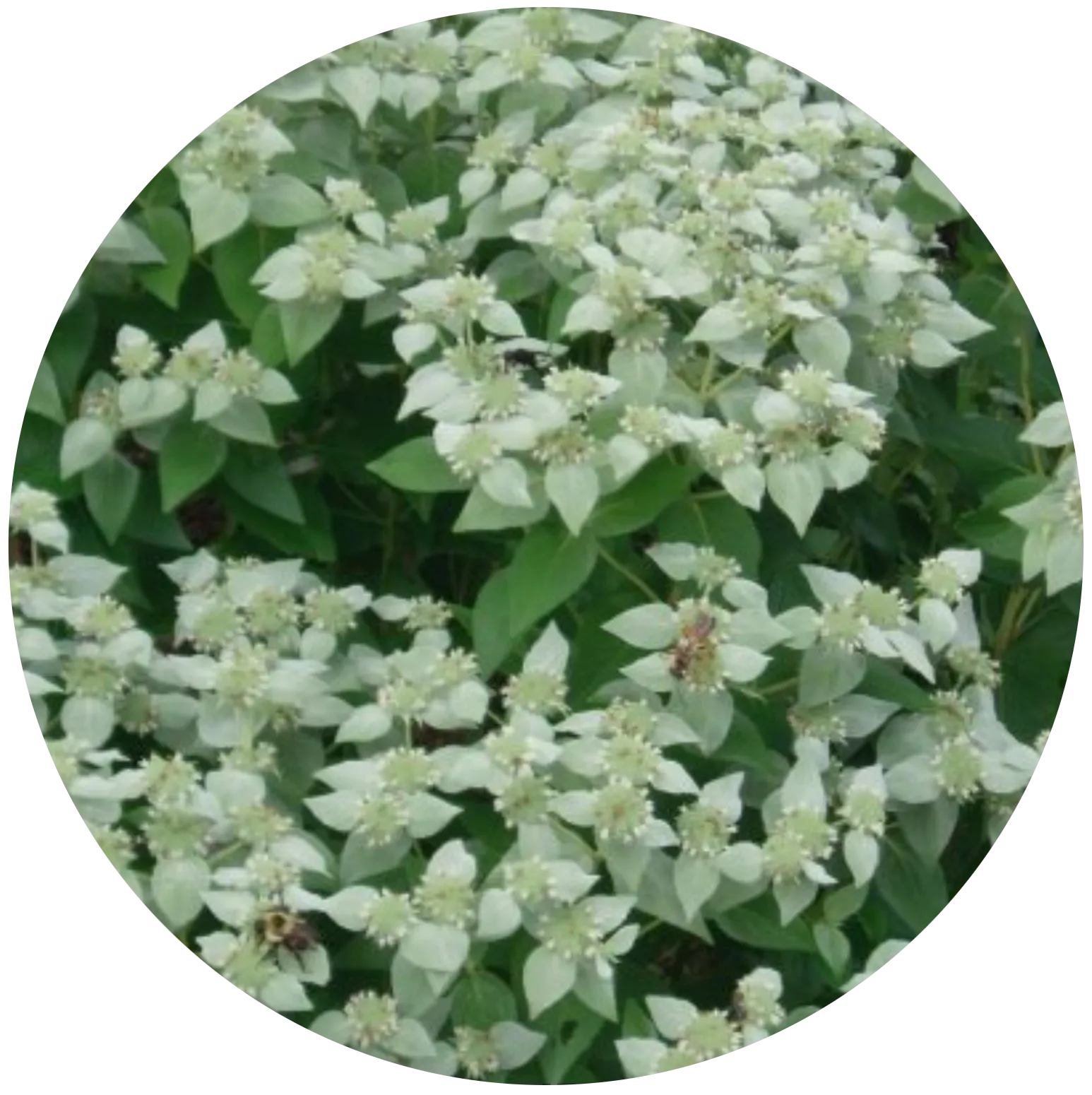
Hoary Mountain Mint
Pycnanthemum incanum
Tall, clump-forming structure with silvery, aromatic foliage. A pollinator magnet that grows well in full sun to part shade with dry to moist soil.
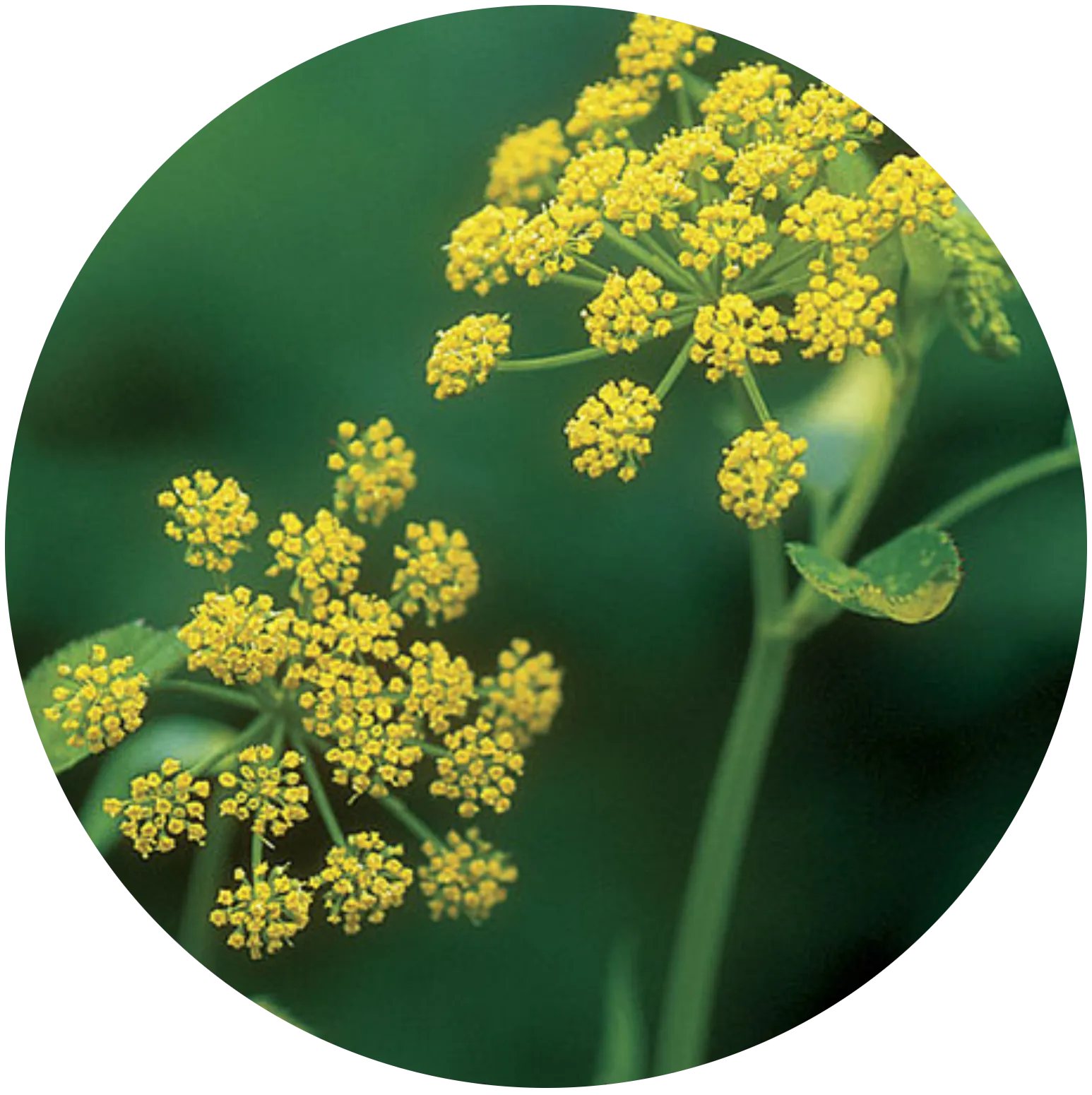
Golden Alexander
Zizia aurea
Host of the black swallowtail with a long blooming period. Excellent for heavy, clay soils. Grows in sun to part shade with medium sandy/clay soil.
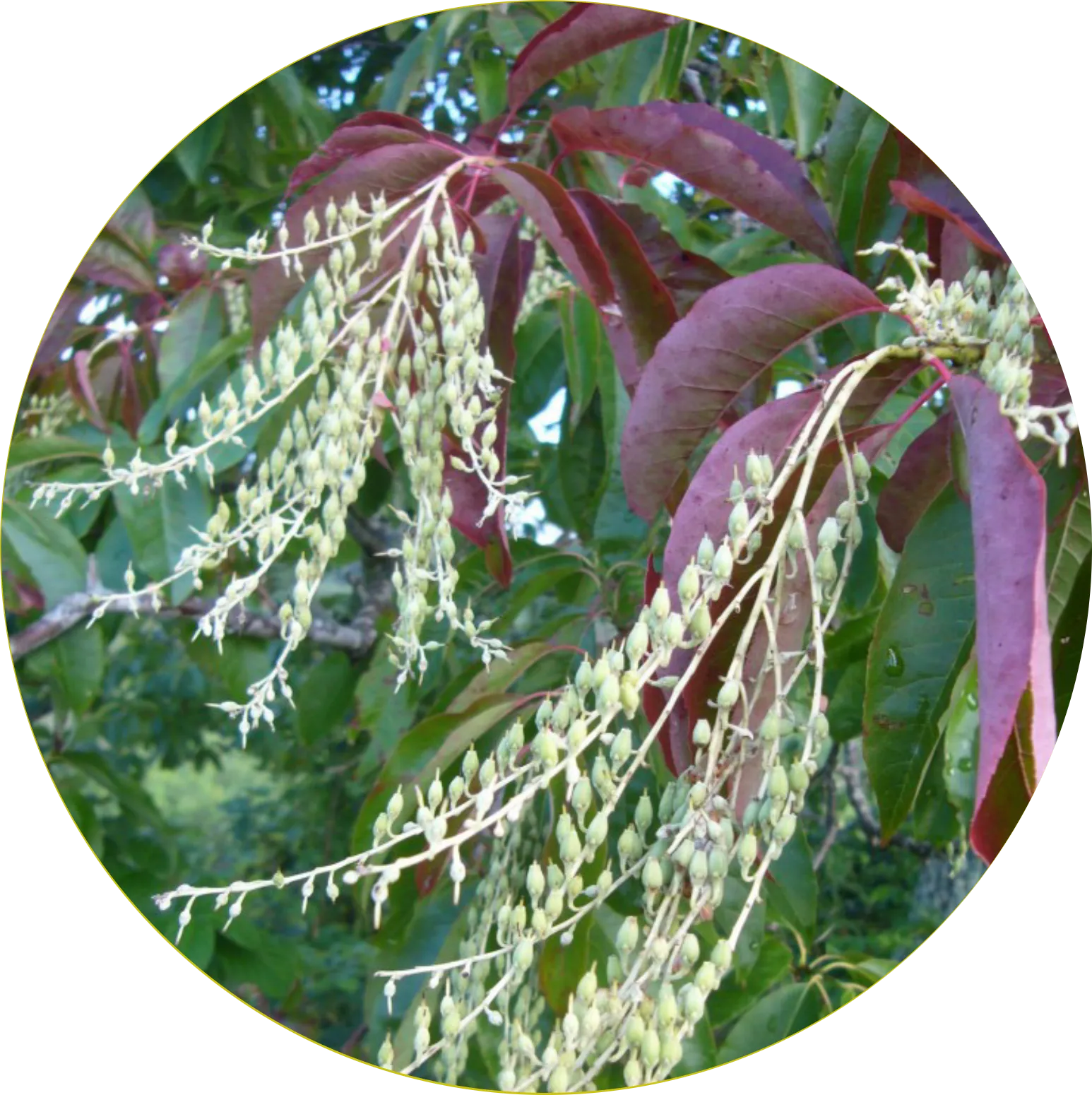
Sourwood
Oxydendrum arboreum
Features great gold/orange fall color and a fine-textured, distinctive form. Grows well in full sun to part shade conditions.
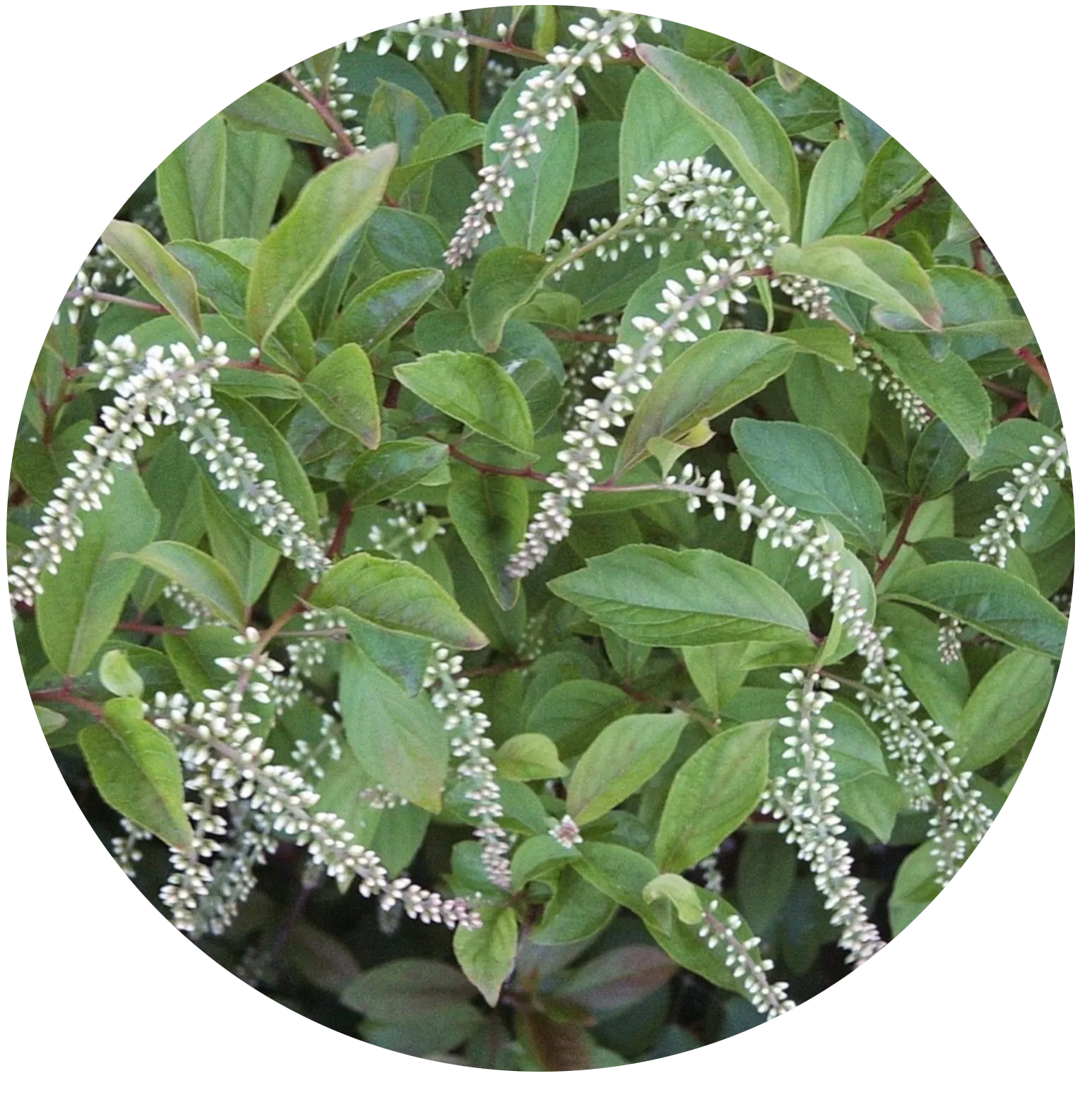
Virginia Sweet Spire
Itea virginica
Fragrant white flower spires in late spring. Stunning red to purple fall color that persists into winter. Adaptable to various soil conditions including wet areas.
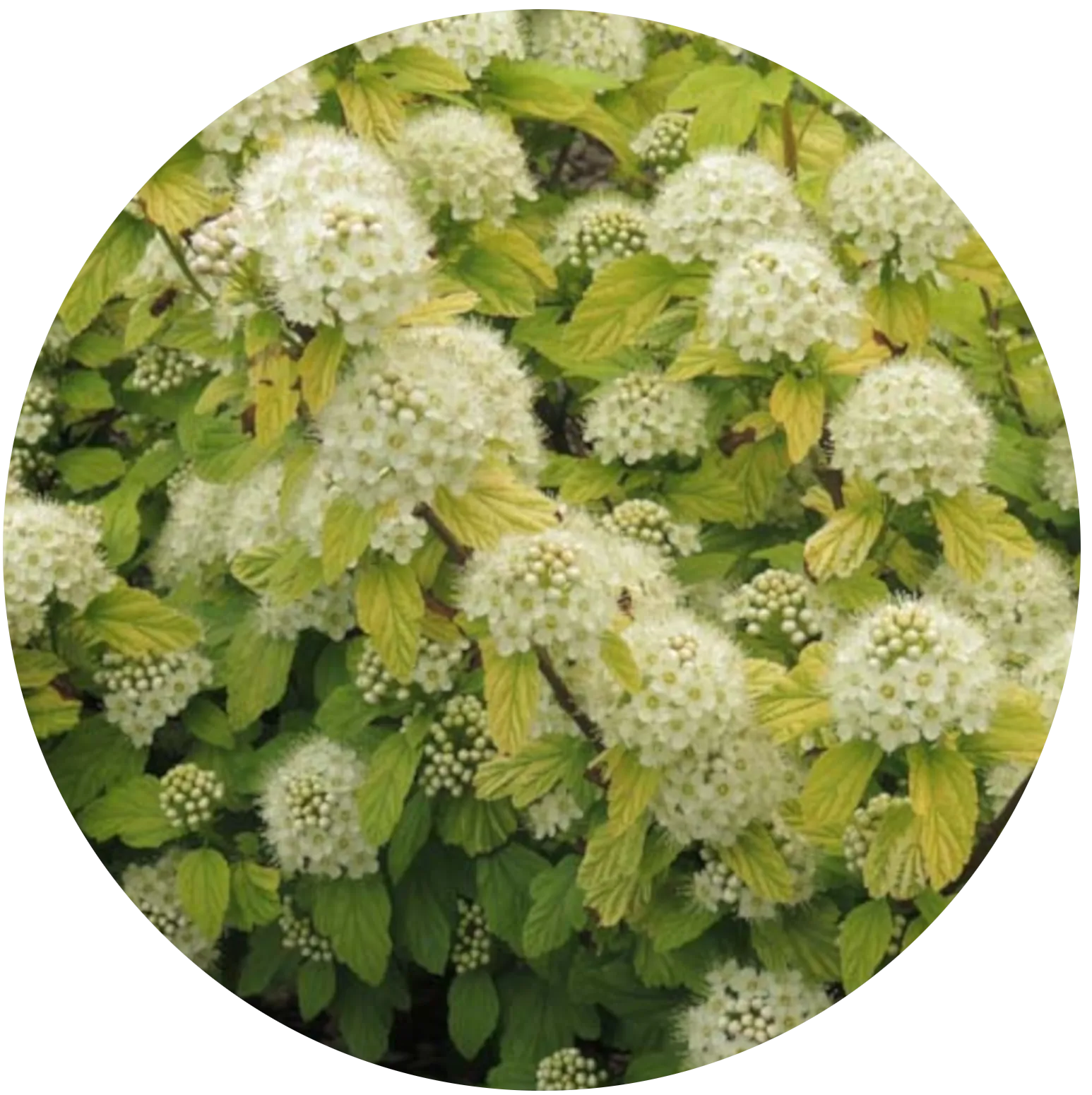
Ninebark
Physocarpus opulifolius
Peeling bark provides winter interest. Clusters of white to pink flowers in spring. Drought tolerant once established.
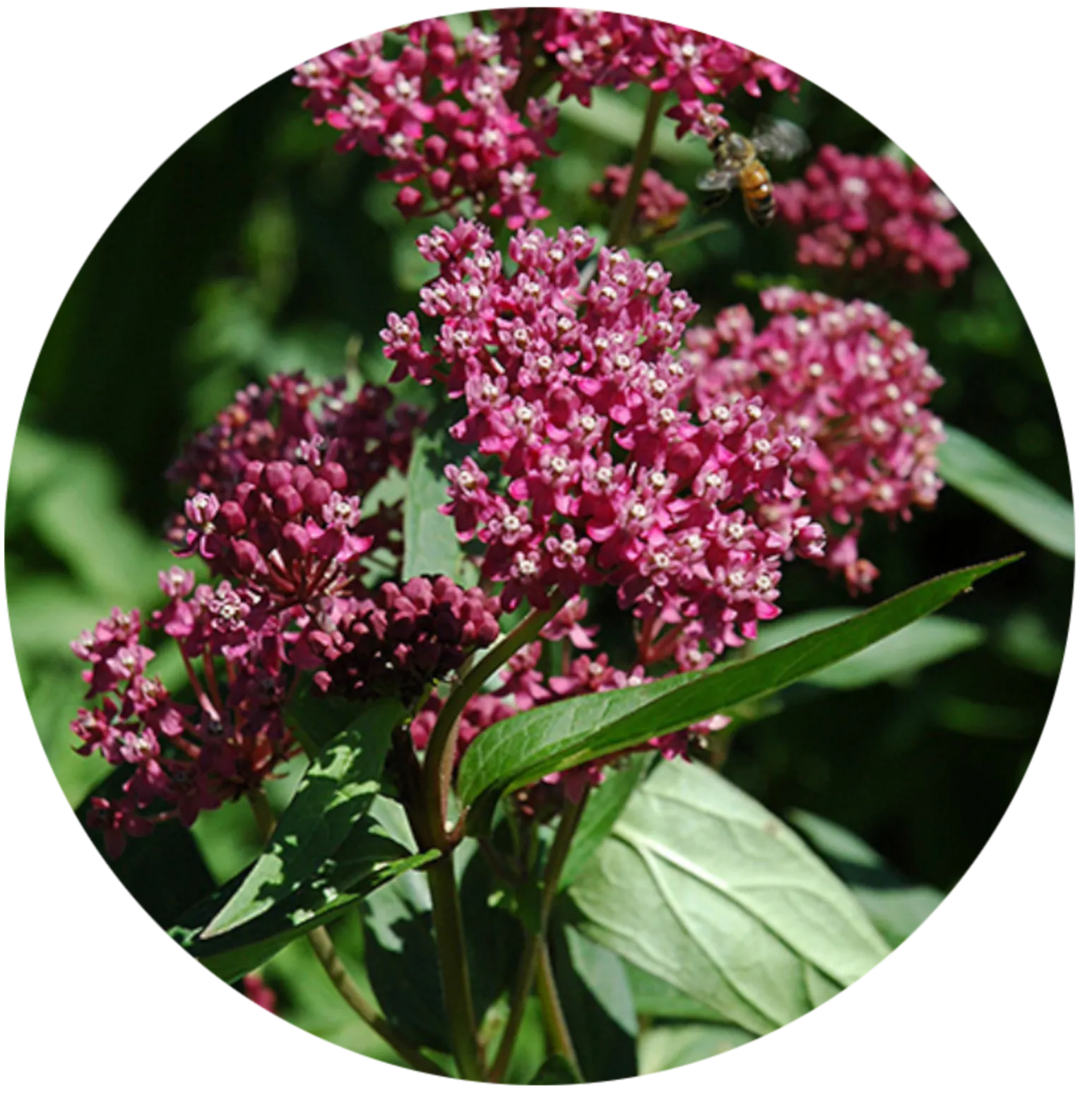
Swamp Milkweed
Asclepias incarnata
Essential host plant for monarch butterflies. Fragrant pink to mauve flower clusters. Great for rain gardens and wet areas.
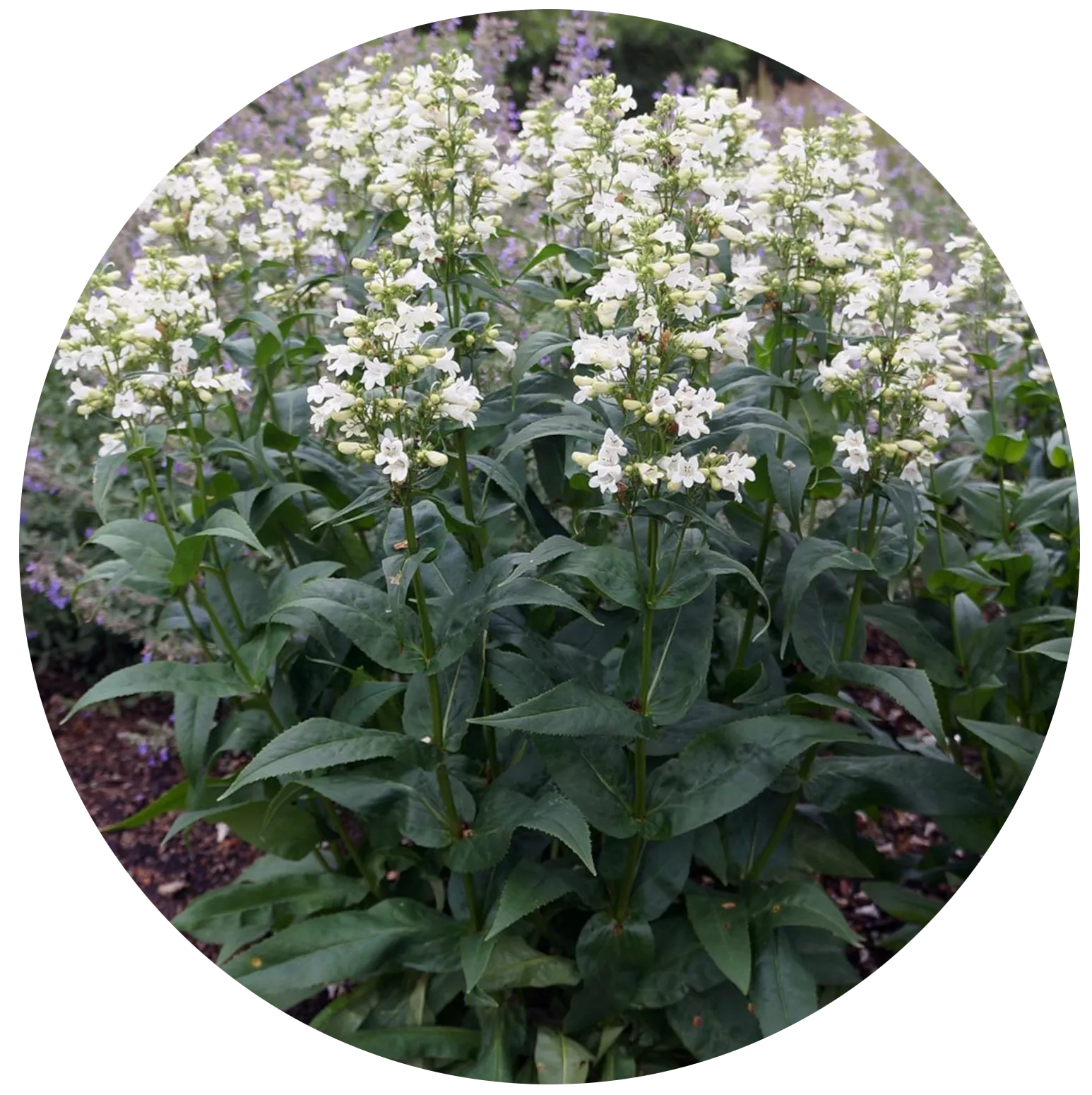
Beardtongue
Penstemon digitalis
White tubular flowers attract hummingbirds and bees. Drought tolerant once established. Deer resistant perennial.
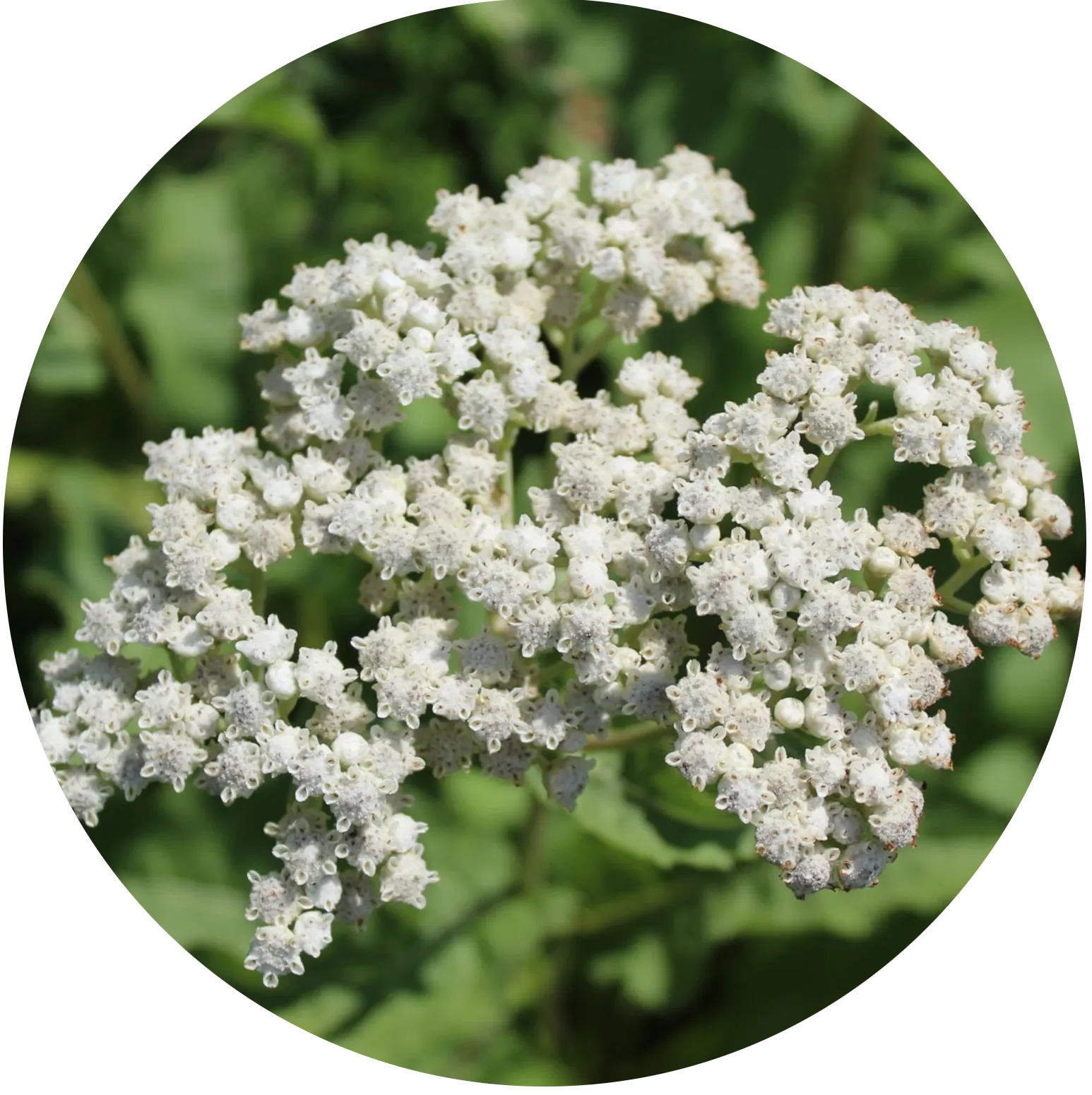
Wild Quinine
Parthenium integrifolium
Long-lasting white flower clusters. Drought tolerant native with deep taproot. Historically used medicinally.
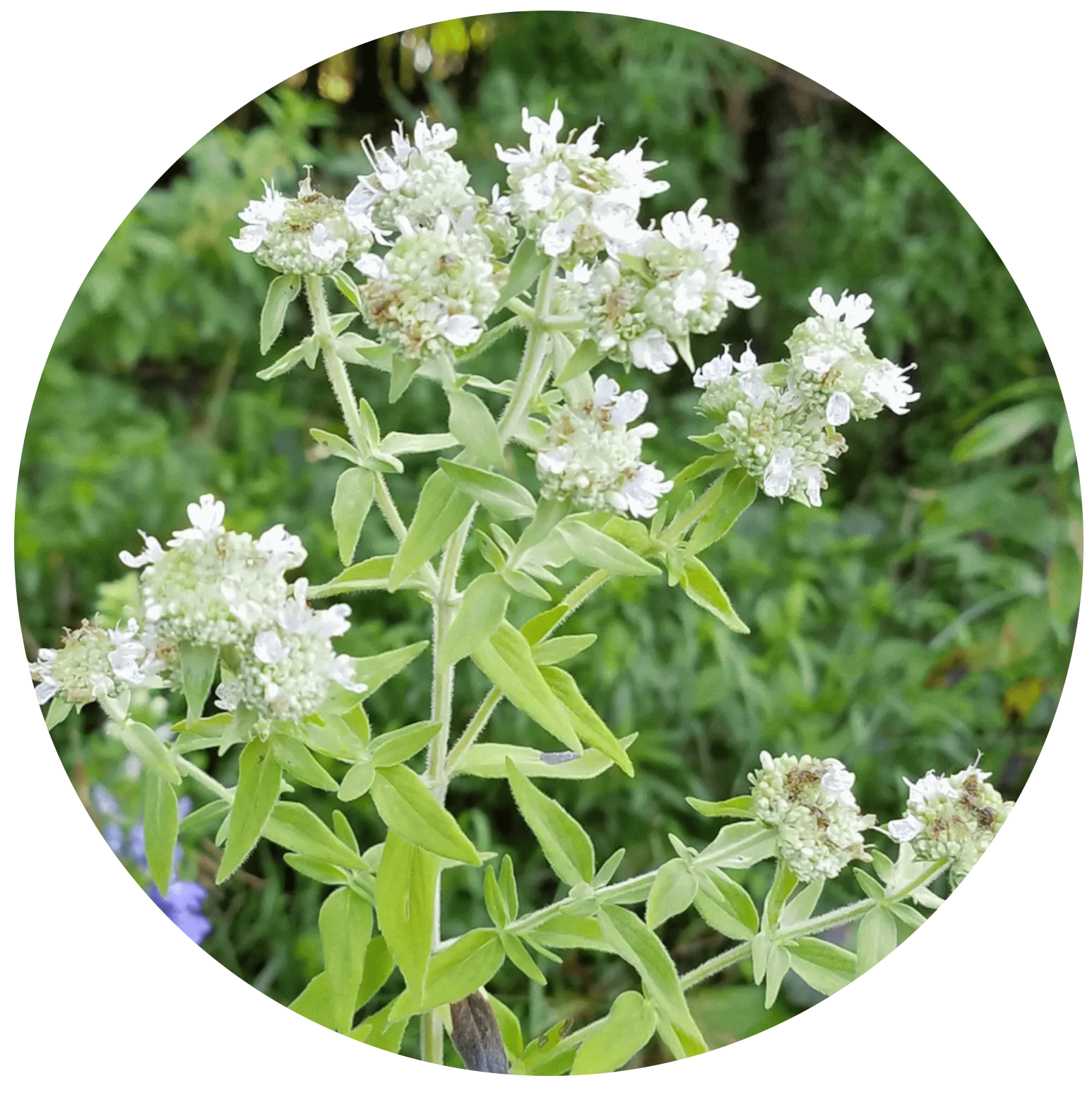
Hairy Mountain Mint
Pycnanthemum pilosum
Aromatic foliage with silvery bracts. Exceptional pollinator plant. Deer and rabbit resistant.
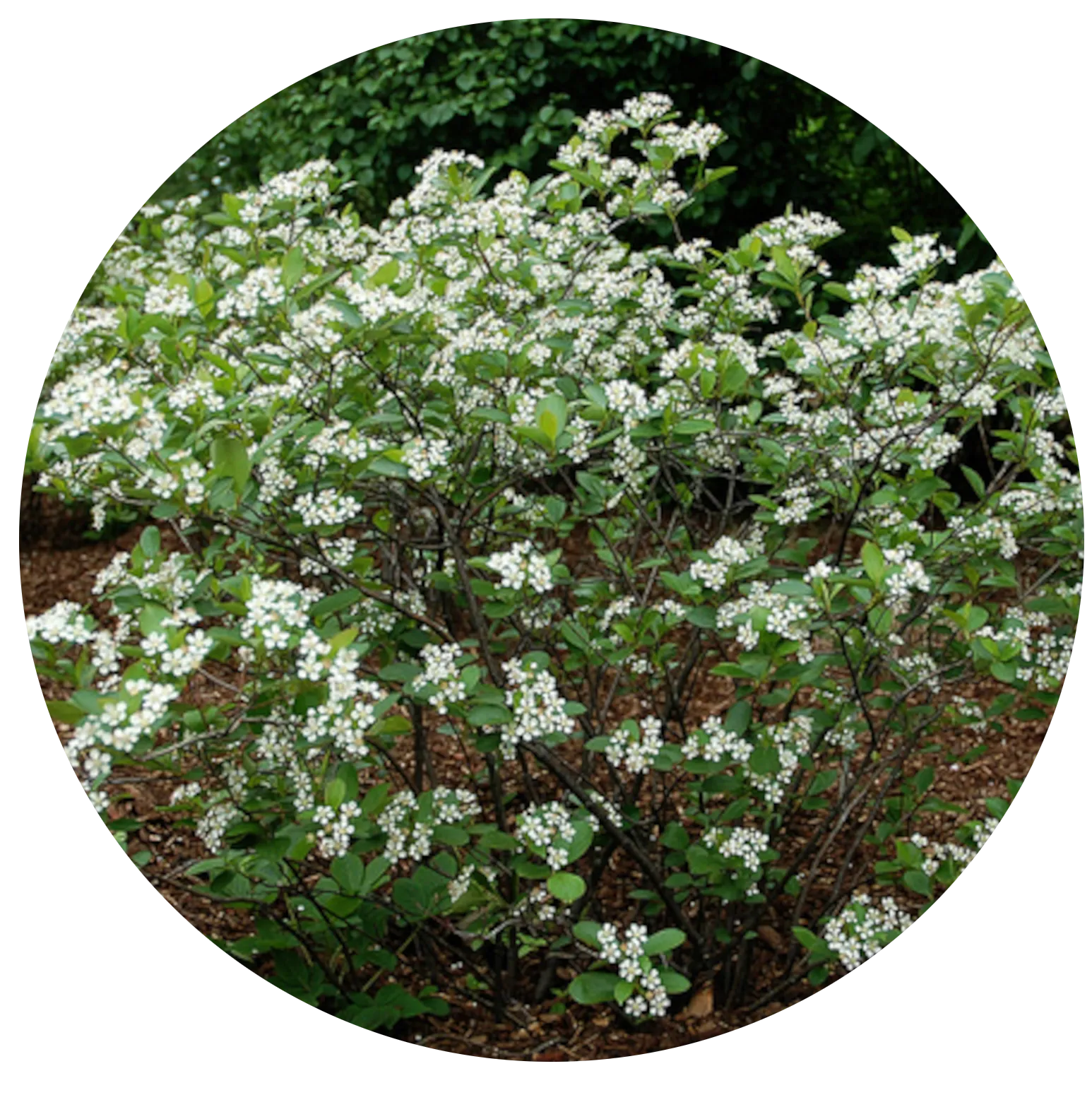
Black Chokeberry
Aronia melanocarpa
White spring flowers followed by black berries. Outstanding red fall color. Berries persist into winter for birds.
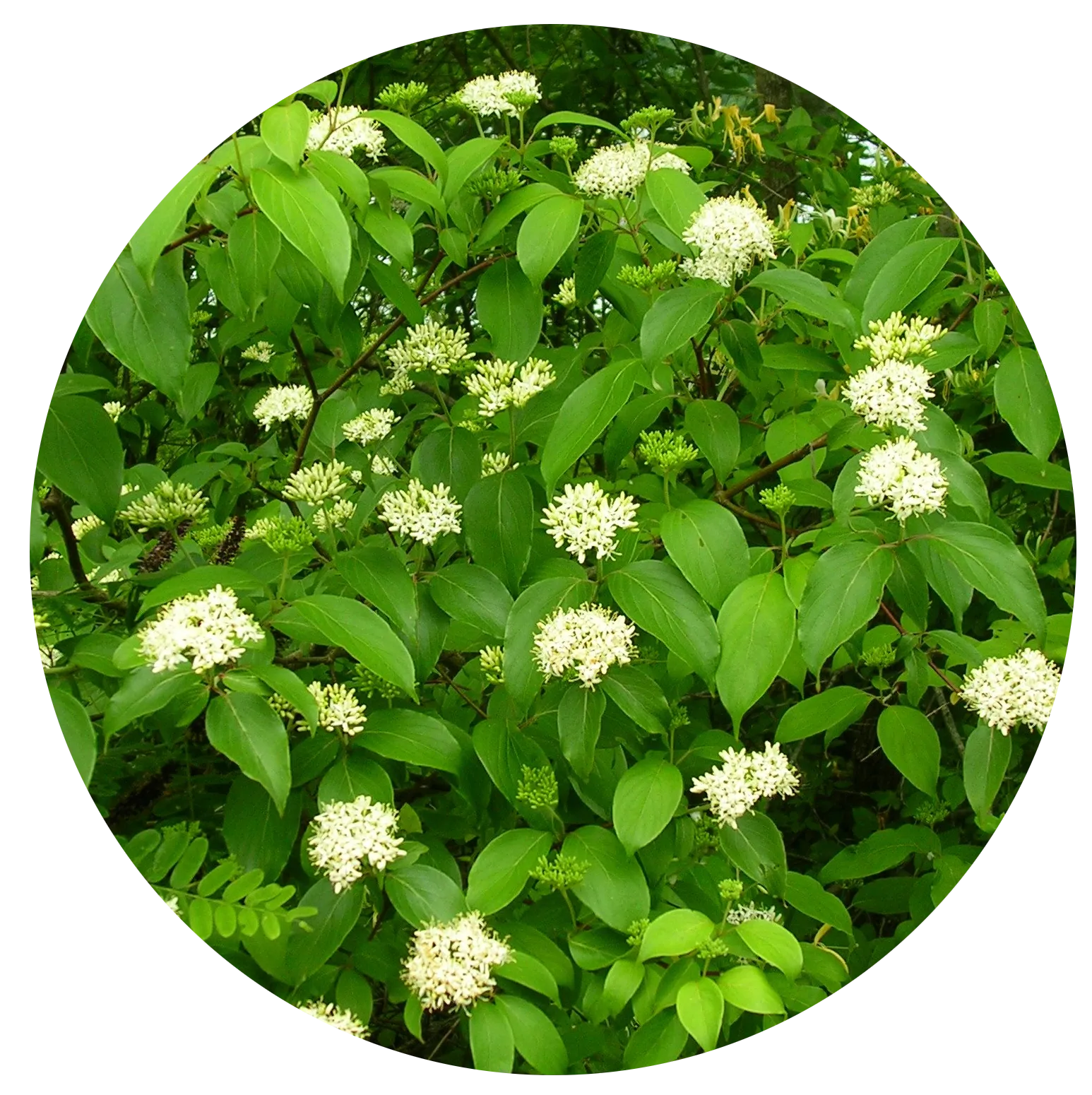
Silky Dogwood
Cornus amomum
White flower clusters in late spring. Blue berries in late summer. Excellent for streambank stabilization.
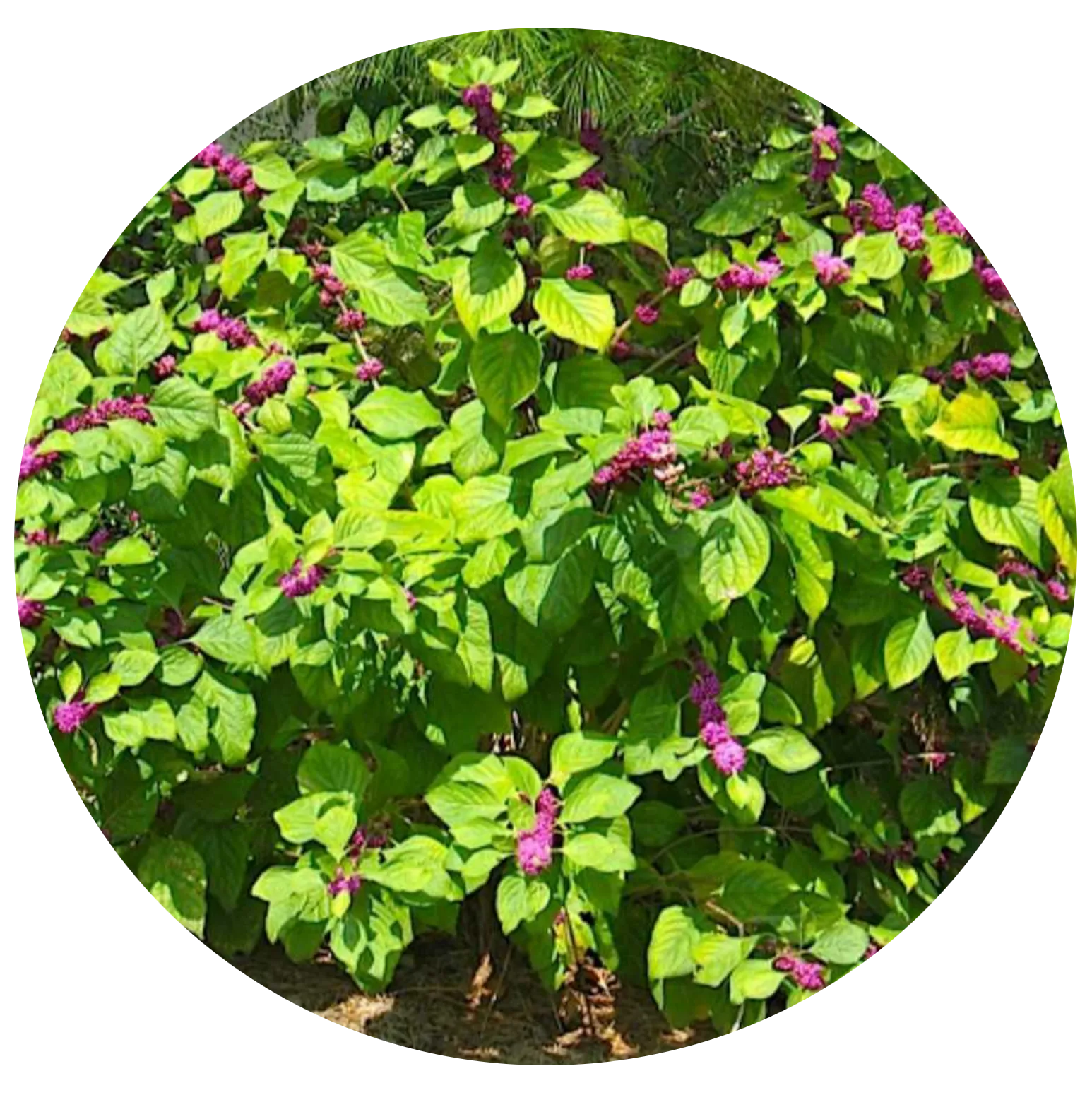
American Beautyberry
Callicarpa americana
Spectacular purple berries in fall. Attracts songbirds and other wildlife. Arching growth habit.
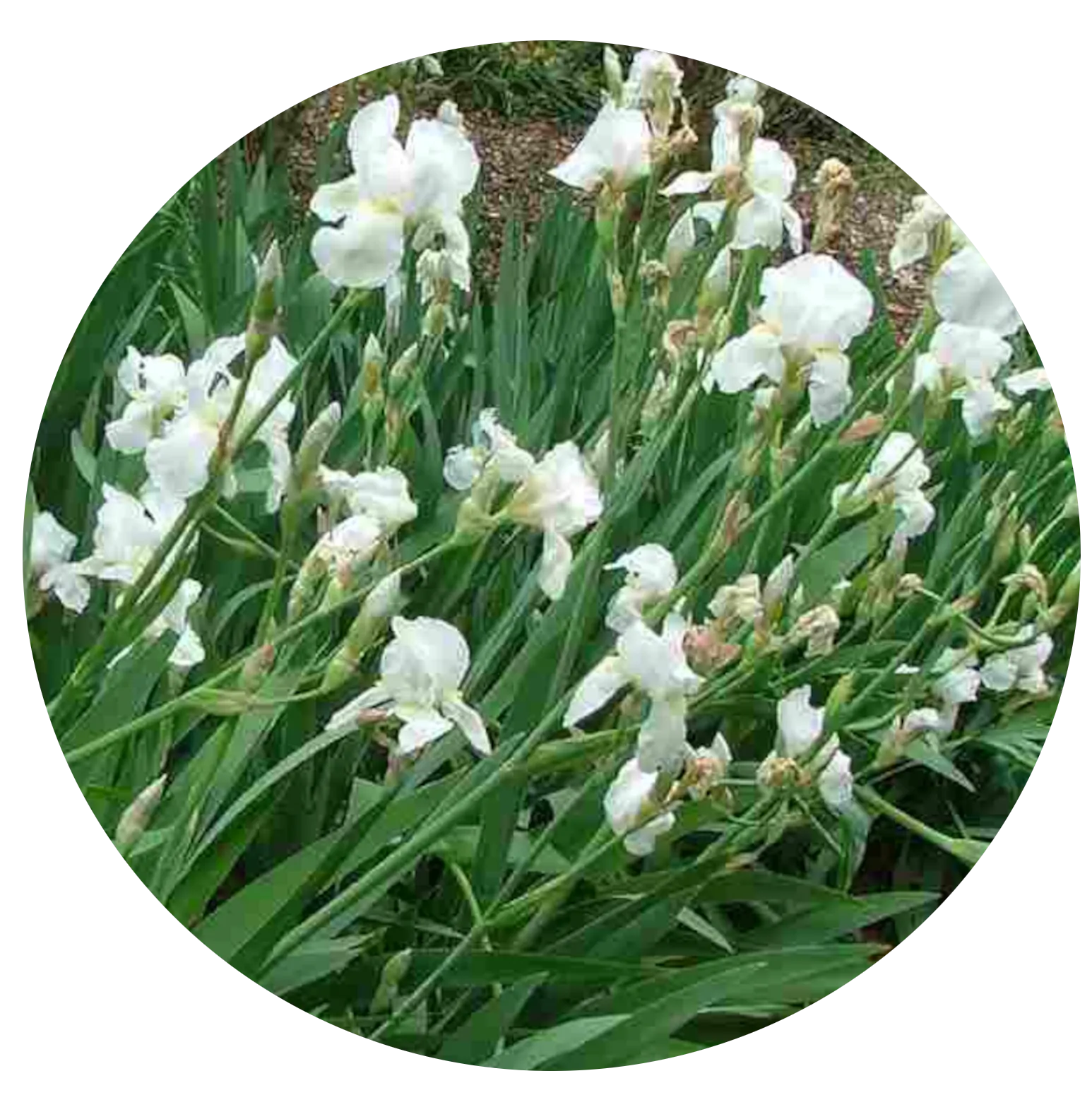
Iris Germanica White
Iris cristata
Showy white flowers in spring. Low-growing groundcover. Deer resistant.
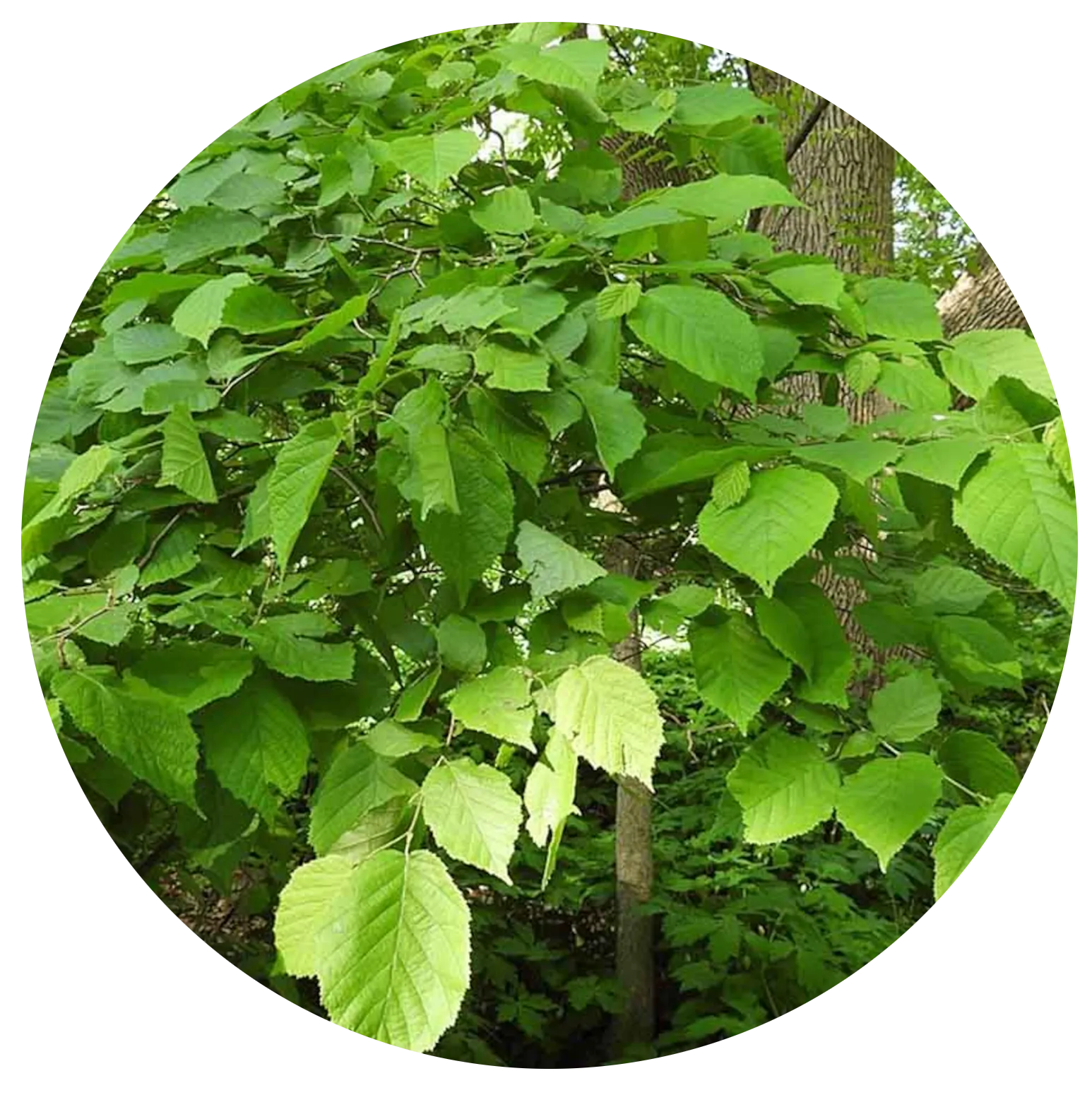
American Hazelnut
Corylus americana
Produces edible nuts in fall. Attractive catkins in early spring. Wildlife food source.
Part Shade to Shade Plants
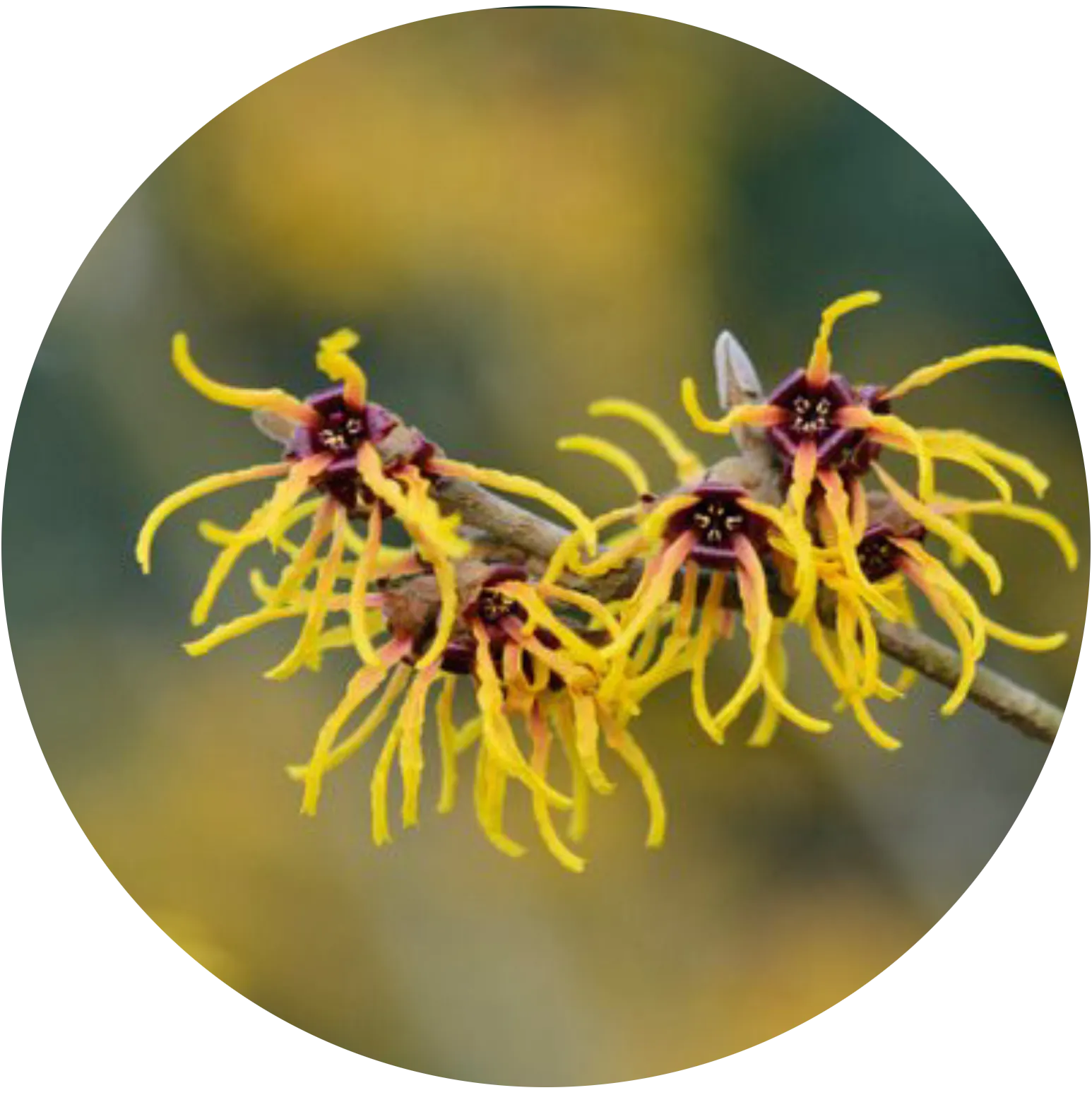
Witch Hazel
Hamamelis virginiana
Attracts numerous birds and features fragrant yellow flowers in the fall. Popular herbal/medicinal plant that thrives in part shade to shade conditions.
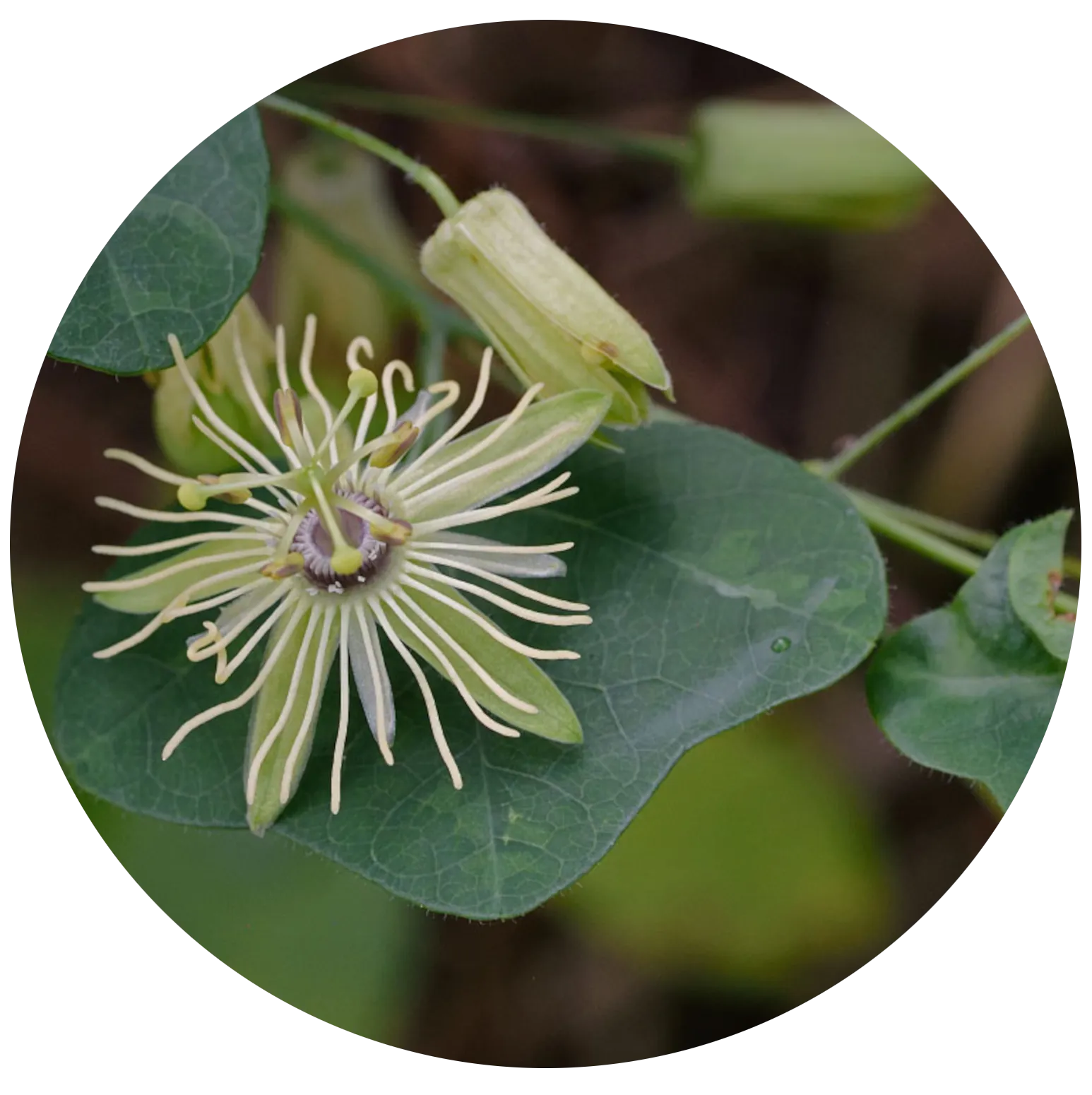
Passionflower
Passiflora lutea
Unique exotic-looking yellow flowers. Larval host plant for several butterfly species. Climbing vine with attractive foliage.
All Sun Exposure Plants
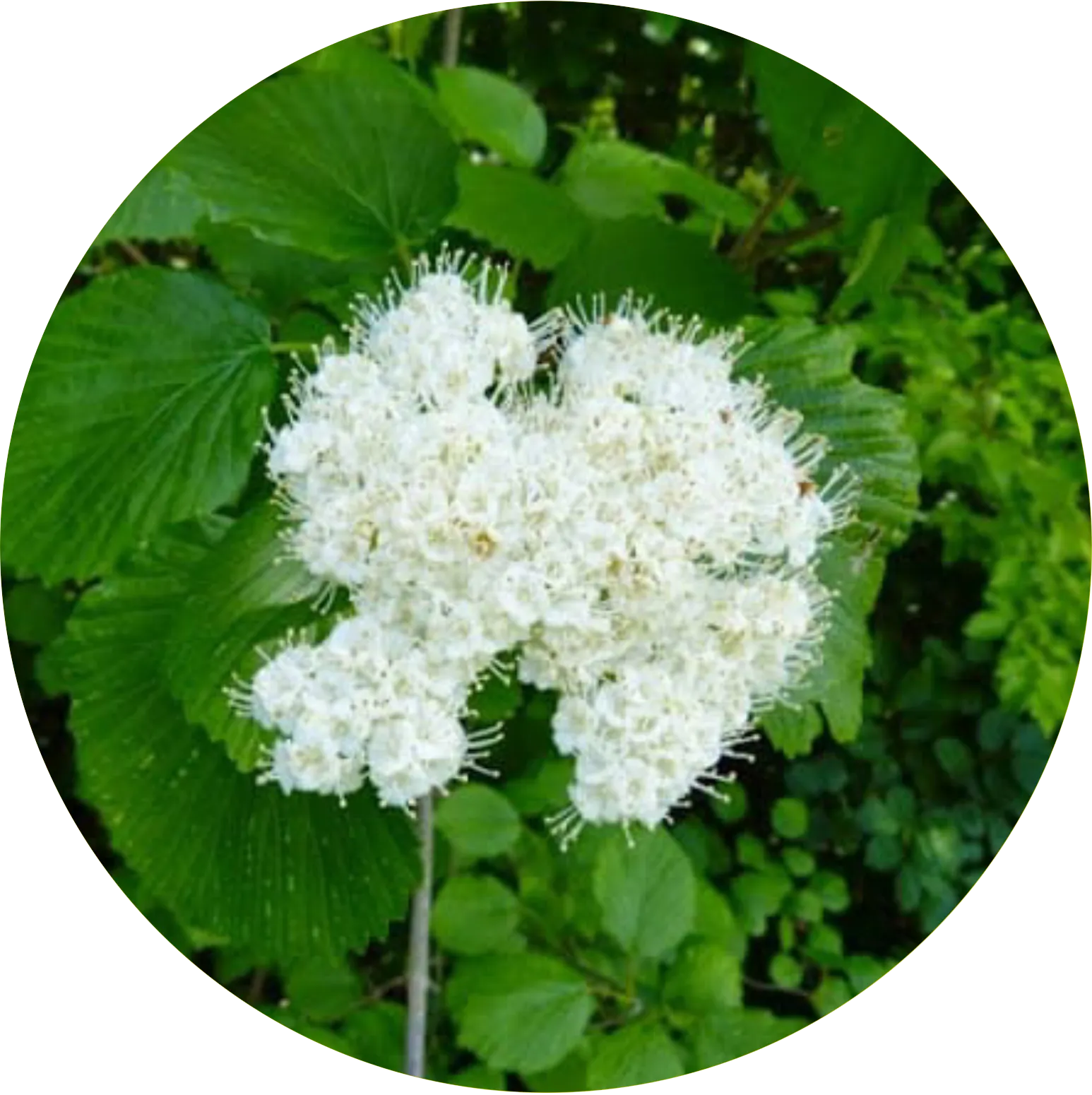
Southern Arrowwood
Viburnum dentatum
Insect and disease tolerant shrub/small tree, growing up to 15ft tall. Attracts numerous birds and can grow in sun, part shade, or shade conditions.
Benefits of Native Plants
Support Pollinators
Native plants provide essential food and habitat for butterflies, bees, and other pollinators.
Water Conservation
Once established, native plants require less water than non-native species.
Low Maintenance
Native plants are adapted to local conditions and typically require less care.
Environmental Impact
Native plants help restore and preserve local ecosystems and biodiversity.
Ready to Add Native Plants to Your Garden?
Browse our selection above to learn more about our native plants!
